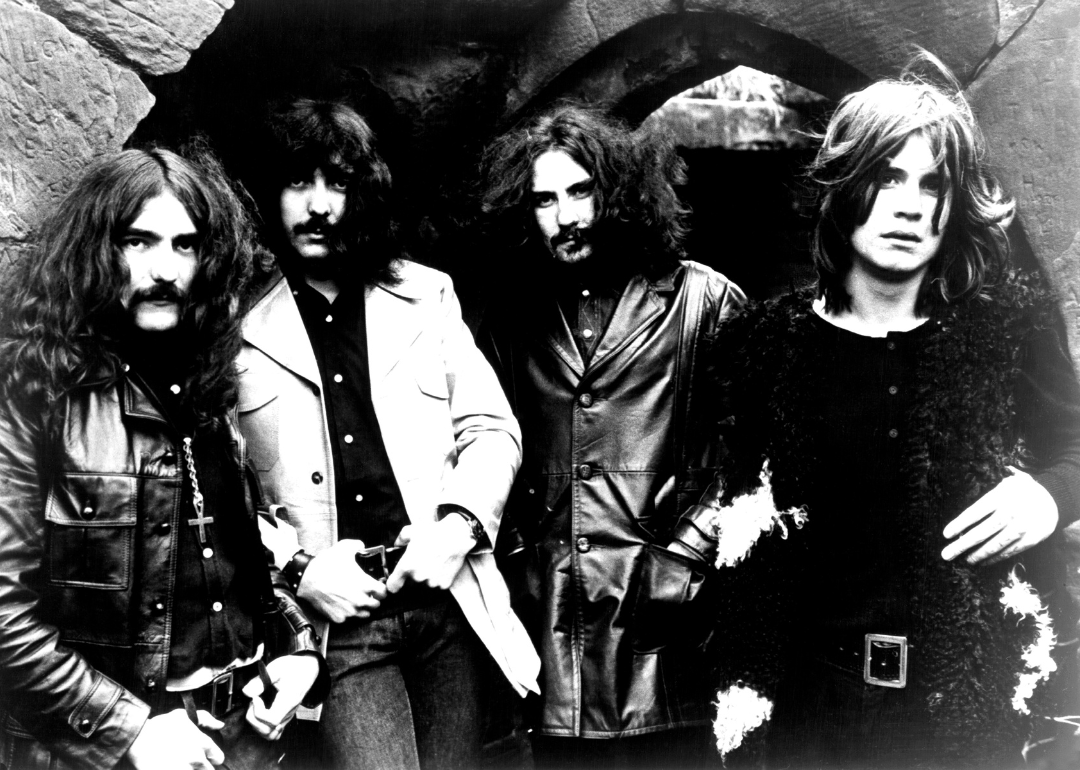
Bestselling musicians of the '70s, then and now
The 1970s saw an experimental phase of music, with eclectic sounds and new artists flooding the airways. It is impossible to encompass all the music of this decade into a single genre. Folk, funk, rock 'n' roll, heavy metal, country, jazz, R&B, and disco were all synonymous with the sound of music at that time.
Music from the '70s combined poetic songwriting, experimental instruments, wild costumes, and thrilling stage performances. Record companies were more open to supporting up-and-coming artists than established bands with a proven track record.
The social and political upheaval of the 1970s brought protests to many of America's streets and college campuses and is reflected in the music of the decade's early years. The technological advancements of the late '70s expanded the options in the studio, allowing musicians more creative expression.
Using historical Billboard charts and other top song and album lists from the 1970s, Stacker spotlighted 25 of the bestselling musicians of the decade. This list demonstrates the diverse sound of the 1970s with artists like the funky Al Green to slow jazz sung by the beautiful voice of Carole King and rock classics from the likes of Led Zeppelin.
Read on to learn where the bestselling artists were in their lives when they rode the top of the charts and what they are doing today.
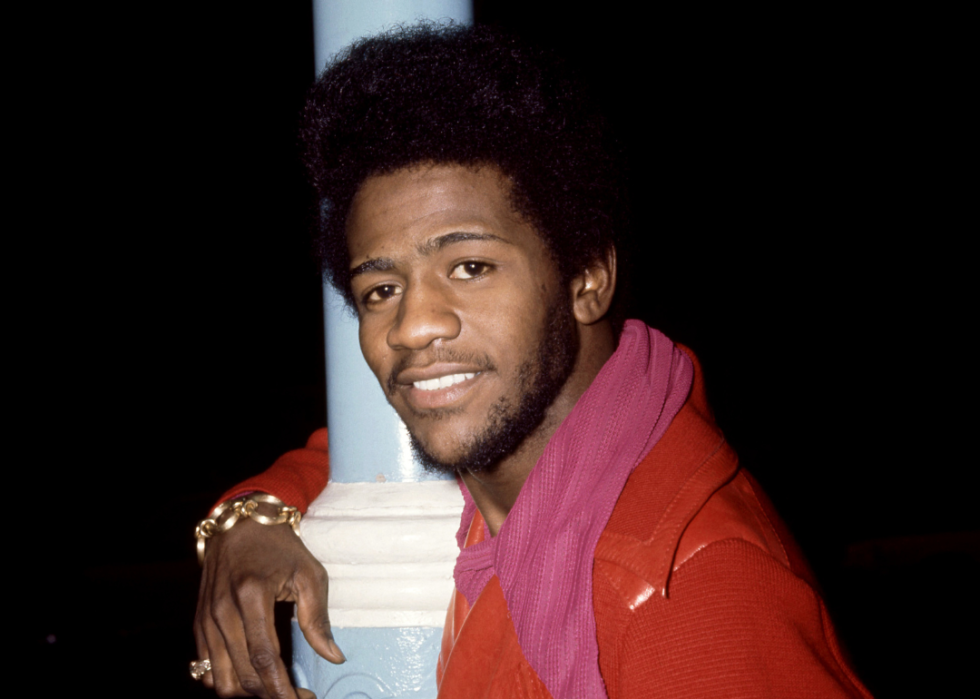
Al Green: Then
The soulful voice behind hits like "Let's Stay Together" and "Love and Happiness," Al Green became one of the most successful artists of the 1970s. However, in 1979, the R&B singer fell offstage during a concert in Cincinnati, which he took as a sign from God that it was time to step away from his music career and devote himself to the church.
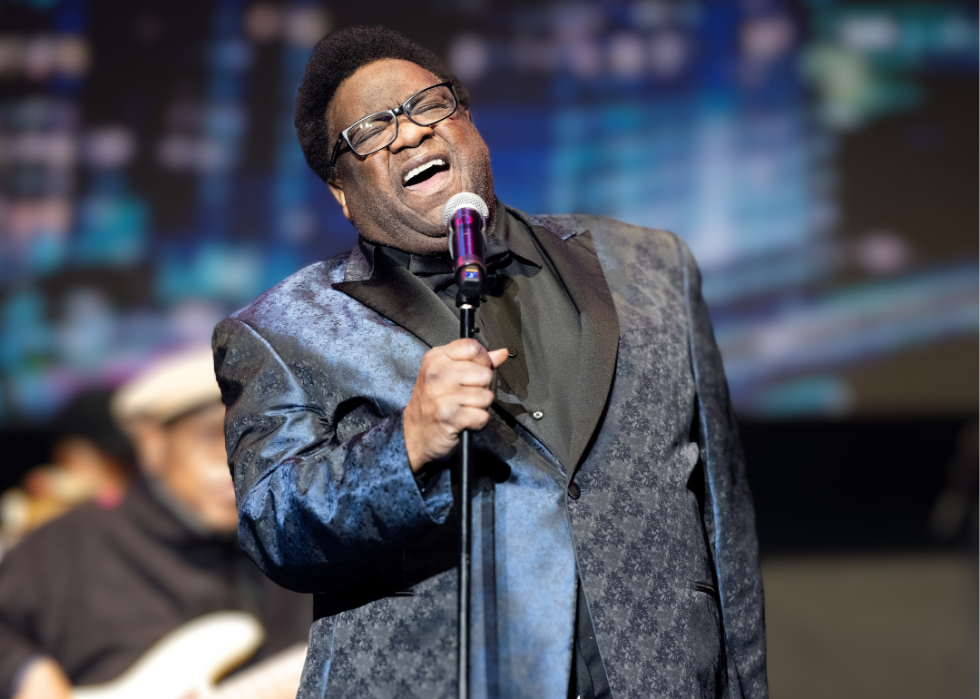
Al Green: Now
In 1982, Green's career took a turn when he co-starred opposite Patti LaBelle in the Broadway musical "Your Arms Too Short to Box with God." While he has continued to express his spiritual devotion as a minister in Memphis, Tennessee, in 2008, he released "Lay It Down," an R&B album produced by Questlove. And in 2018, Green debuted a cover of "Before the Next Teardrop Falls," his first new recording in a decade.
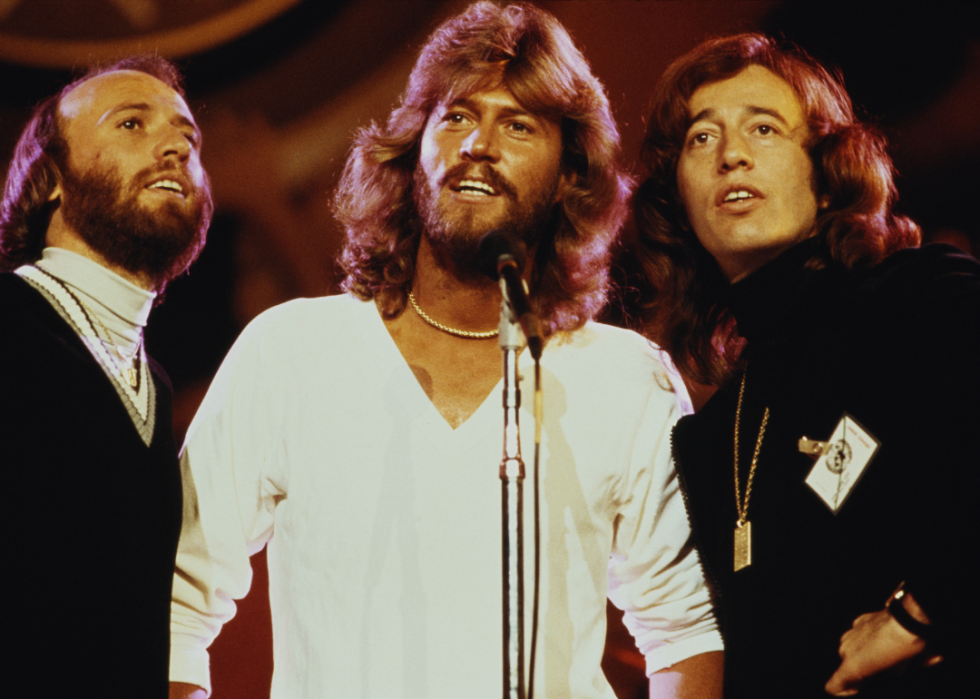
Bee Gees: Then
In 1978, the Australian pop group Bee Gees occupied the #1 and #2 spot on the Billboard Hot 100 for five weeks with the "Saturday Night Fever" soundtrack hits "Night Fever" and "Stayin' Alive," becoming the first group since the Beatles to do so. Comprised of three brothers, Bee Gees became emblematic of the mainstreaming of disco, but they also bore the brunt of the anti-disco backlash by the early '80s, leading to their popularity plummeting.
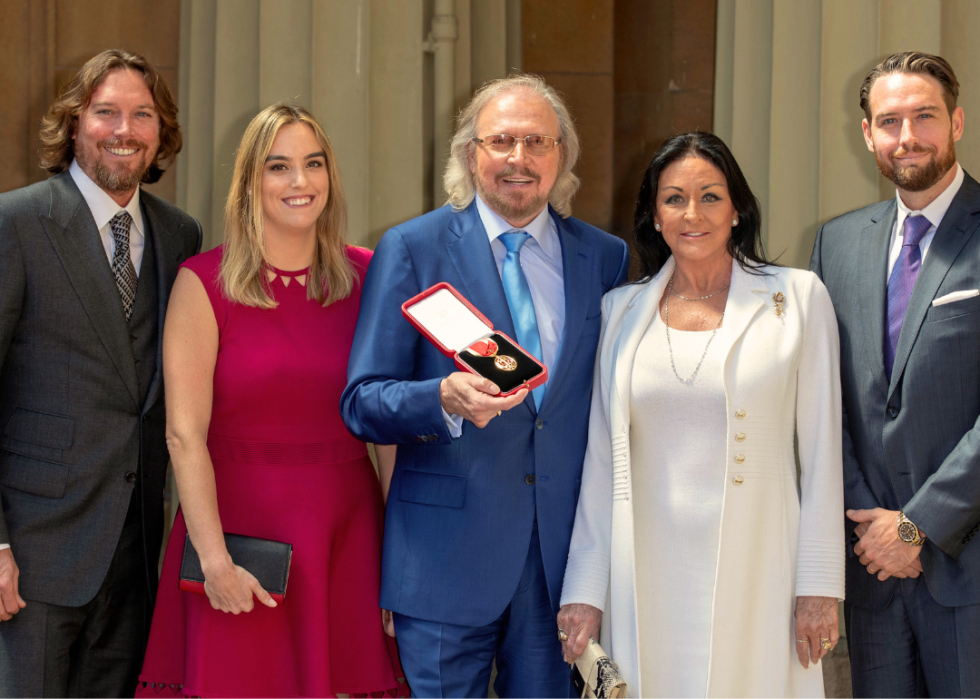
Bee Gees: Now
In 2003, Maurice Gibb died at the age of 53, prompting the two remaining brothers to retire the band formally. Six years later, Robin and Barry Gibb planned a reunion tour, but Robin died before the start of their comeback. In 2021, the sole surviving member of the group, Barry, released the solo album "Greenfields: The Gibb Brothers' Songbook, Vol. 1." In late 2025, Barry announced "The Final Tour" for 2025-2026, featuring a reunion with longtime collaborator Barbra Streisand.
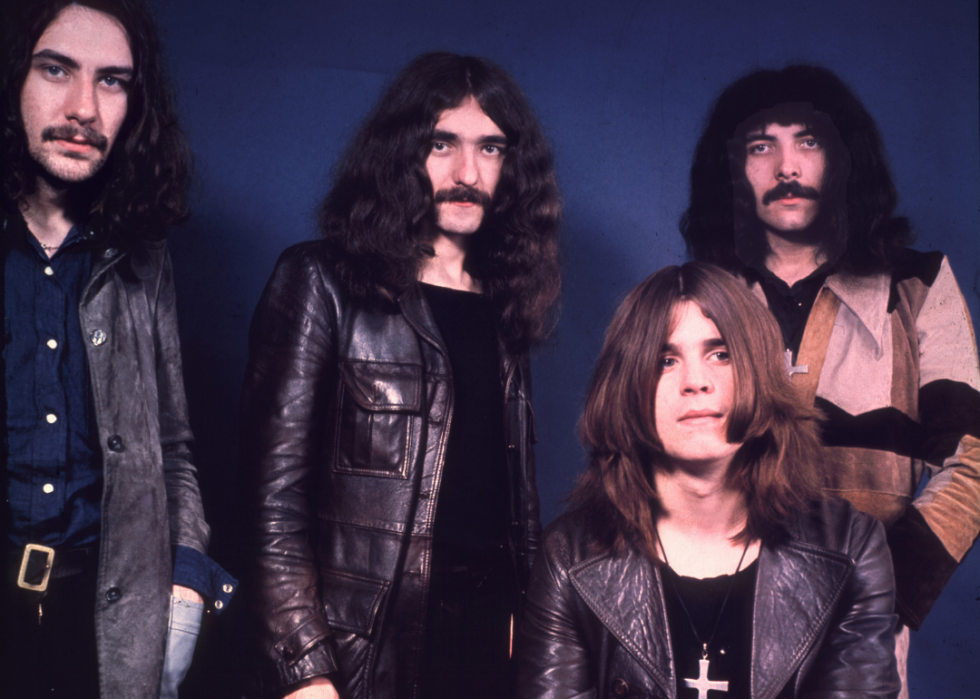
Black Sabbath: Then
With their long hair, leather jackets, and controversial faux-satanic lyrics, the members of Black Sabbath sent parents of the 1970s quivering in fear for the ears and minds of their children. Tony Iommi's demonic guitar riffs and frontman Ozzy Osbourne's thrilling vocals were well-received by young rock 'n' rollers, and the band achieved international success during this decade.

Black Sabbath: Now
Black Sabbath has had a turbulent career since its heyday, with many members coming and going. Although the band officially broke up in 2017, the original members still release solo music today. Since the early 2000s, Ozzy Osbourne and his family have become fixtures of American reality television. Osbourne and Black Sabbath played their last show in early July 2025; weeks later, Ozzy passed away on July 22.
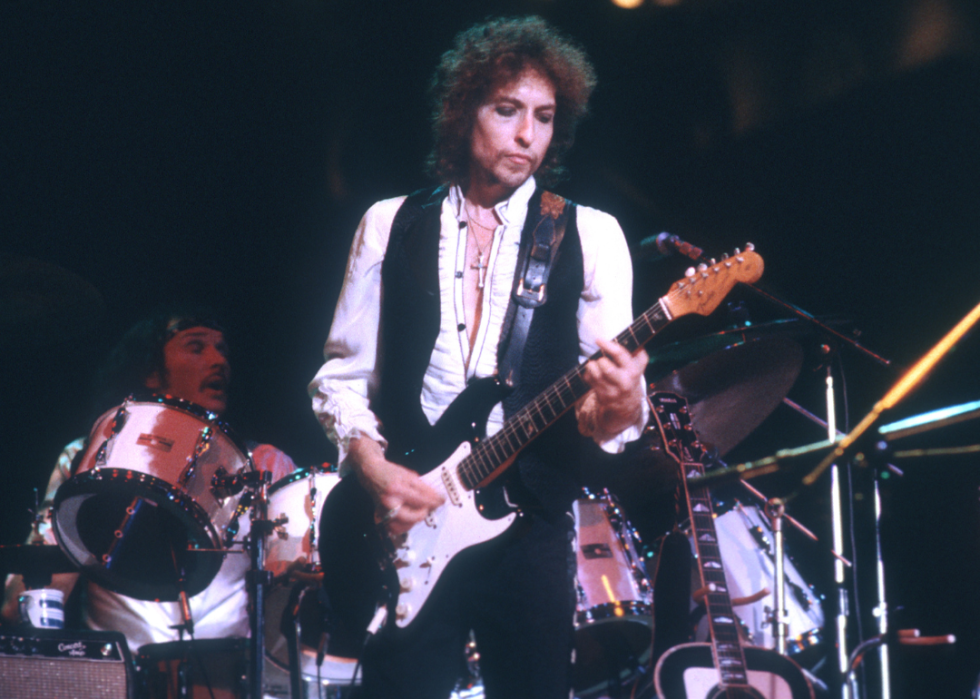
Bob Dylan: Then
Prolific songwriter Bob Dylan started in the 1960s with humble coffeehouse gigs in New York City's Greenwich Village. Still, it didn't take long for him to get noticed once record companies saw past his average guitar playing and unrefined voice and started paying closer attention to his lyrics. The folk singer soared to the top of the charts in the 1970s with albums like "Blood of the Tracks" and "Desire."
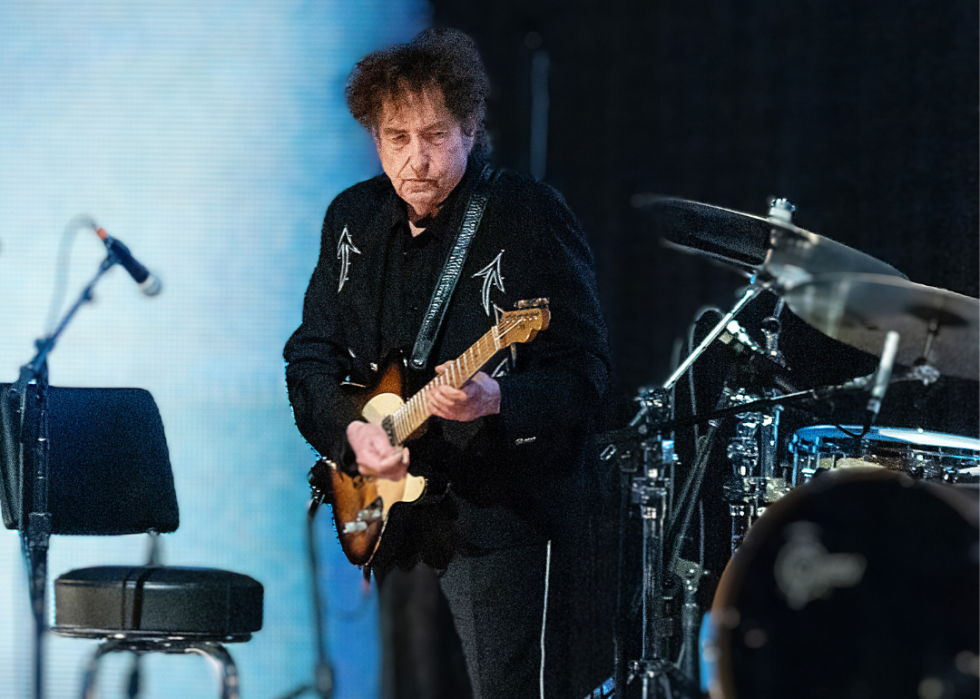
Bob Dylan: Now
Dylan has since been honored with numerous awards, including 38 Grammy nominations and, controversially, The Nobel Prize in literature, which he belatedly accepted in a private ceremony after several months of uncertainty. "A Complete Unknown," a Dylan biopic starring Timothée Chalamet as the iconic singer, opened in December 2024 to strong reviews, and earned eight Academy Award nominations. Today, Dylan is still touring, with multiple dates scheduled through 2026. He famously refuses to play his greatest hits from early in his career, however, instead opting for more recent compositions.
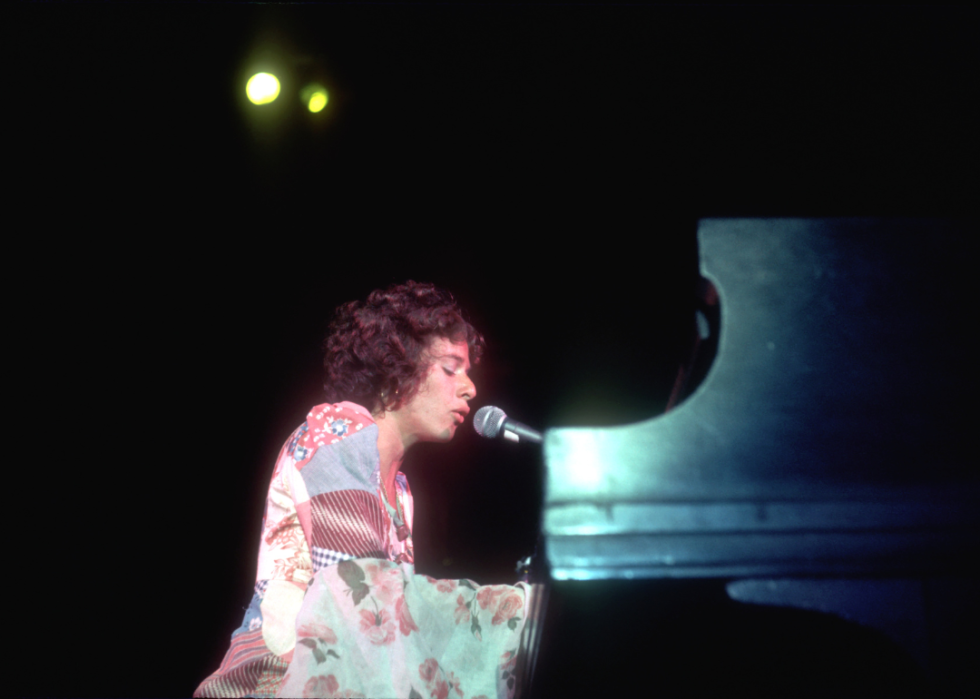
Carole King: Then
A gifted musician, writer, and composer, Carole King started as a young songwriter in the late 1950s and wrote such hits as "Will You Love Me Tomorrow" and "The Loco-Motion." In 1971, she released "Tapestry," which would become one of the bestselling albums of the decade and jump-start her bright career as a solo, award-winning artist.
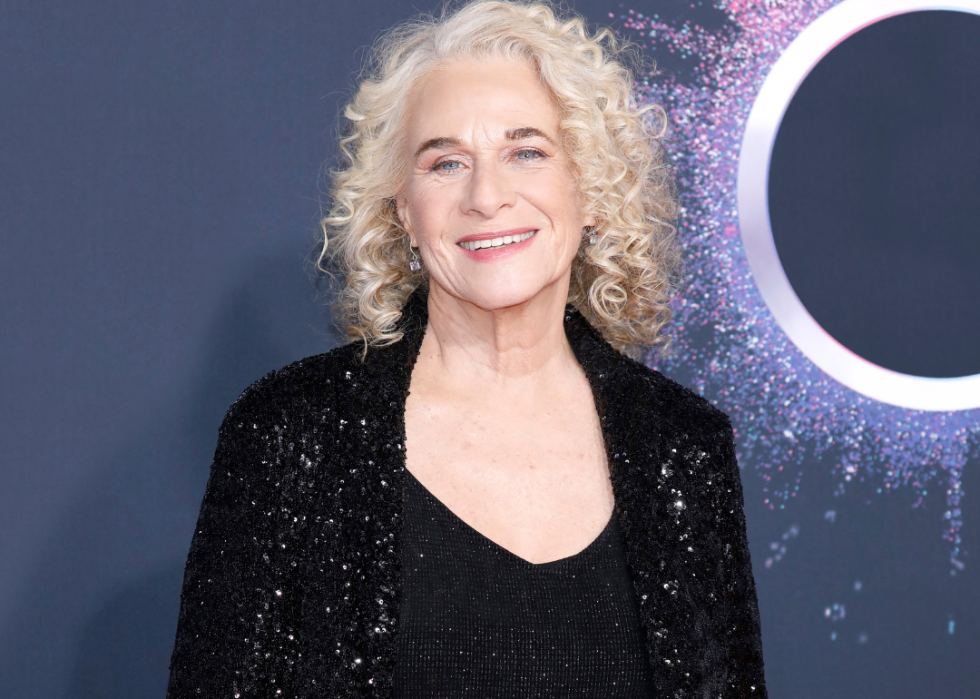
Carole King: Now
King has released over two dozen studio albums and continued performing into the 2010s, alone and with her good friend and fellow musician, James Taylor. In 2014, a Broadway musical debuted based on King's life and music, "Beautiful: A Carole King Musical," which ran until 2019. In 2022, King earned Grammy Award and Golden Globe nominations for co-writing the song "Here I Am (Singing My Way Home)" for the Aretha Franklin biopic "Respect."
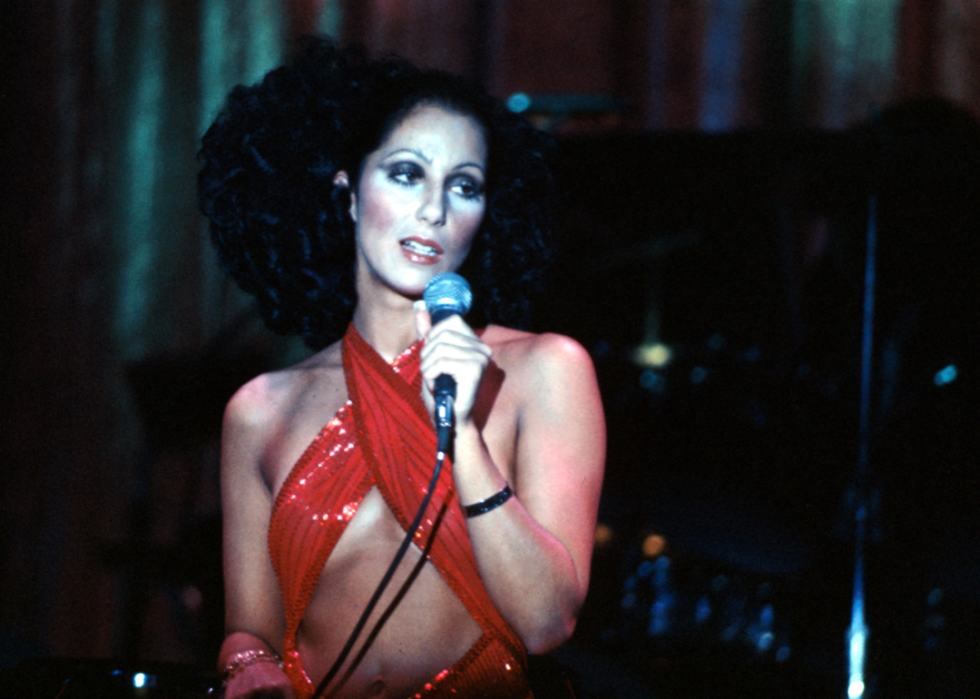
Cher: Then
This pop goddess' career started as one half of the dynamic married duo Sonny & Cher, who occupied the stage and TV screens in the early '70s. Offscreen, Cher created the solo album "Gypsys, Tramps & Thieves" in 1971, which became a hit and signaled the beginning of a career apart from Sonny Bono.

Cher: Now
Since going solo, Cher's fame has only grown as an artist, producer, author, actor, and television personality. She has become known for her iconic performances in "The Witches of Eastwick" and "Moonstruck," and starred in "Mamma Mia! Here We Go Again" in 2018. In 2024, she released "Forever," her latest greatest hits album, as well as the first volume of "Cher: The Memoir." The second half is scheduled for release in November 2026, and she will reportedly be reprising her role as Ruby Sheridan for the in-the-works "Mamma Mia!" sequel.
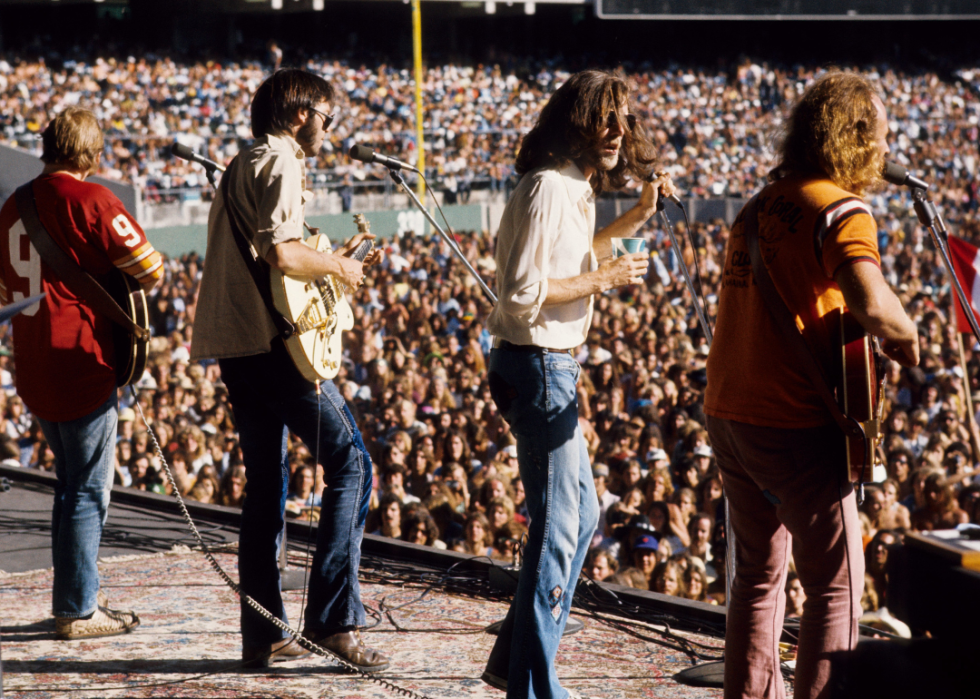
Crosby, Stills, Nash & Young: Then
This supergroup—made up of David Crosby, Graham Nash, Stephen Stills, and Neil Young—made the bestseller list with their 1970 album "Déjà Vu," which included songs like "Helpless" and "Our House." Over the years, the group performed in various configurations—with and without Young—and became notorious for its interpersonal conflicts.
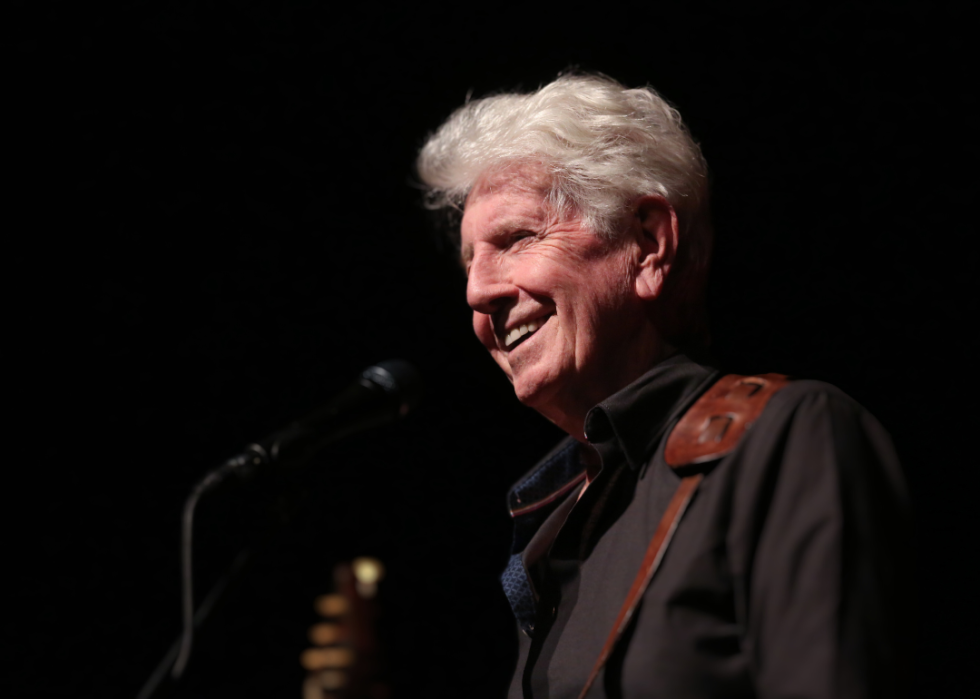
Crosby, Stills, Nash & Young: Now
The group broke up and reformed several times from the '70s through the '90s, and the members had successful solo careers. All four members have been inducted into the Rock & Roll Hall of Fame twice. David Crosby died in January 2023. The remaining members still perform and record separately.
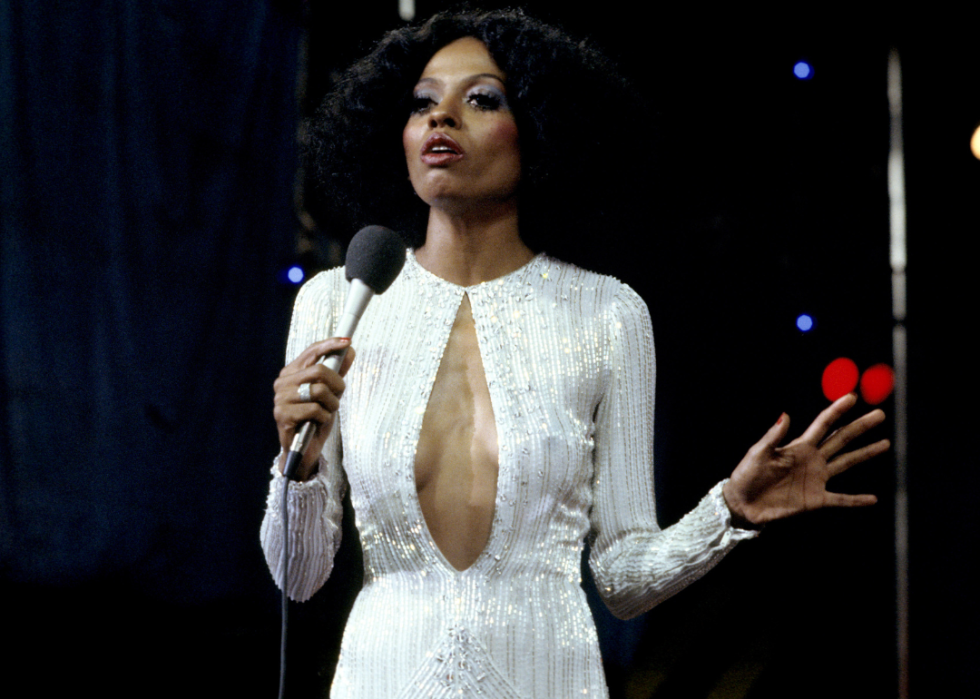
Diana Ross: Then
Diana Ross left Motown Records' girl group, the Supremes, in 1970 when she started her much-anticipated solo career. In one of her first releases, she eases the listener into the opening chorus with her iconic honeyed voice and steadily crescendos until she knows she has everyone bobbing their head, then belts out the famous line, "Ain't no mountain high enough." The song reached #1 in the United States.
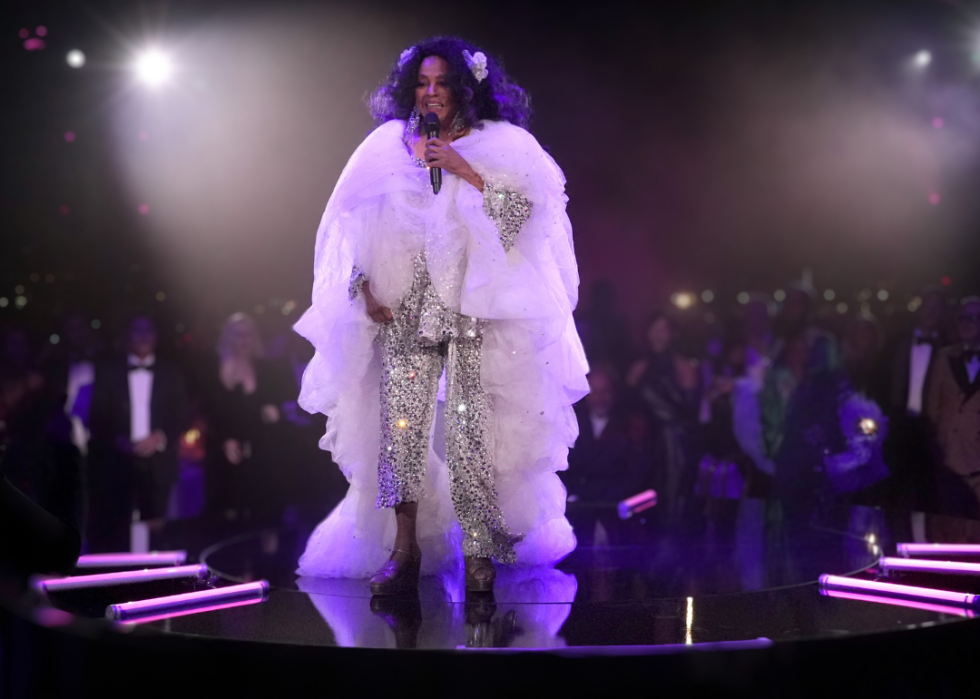
Diana Ross: Now
In the late '80s, Ross returned to her Motown roots and balanced her music aspirations with a burgeoning acting career. Ross has continued to record albums and received a Best Traditional Pop Vocal Album Grammy nomination in 2023. She has also maintained her stage presence, performing across the U.S. and Europe in 2025, culminating in an appearance on "Dick Clark's New Year's Rockin' Eve with Ryan Seacrest." Ross also has multiple shows scheduled for 2026.
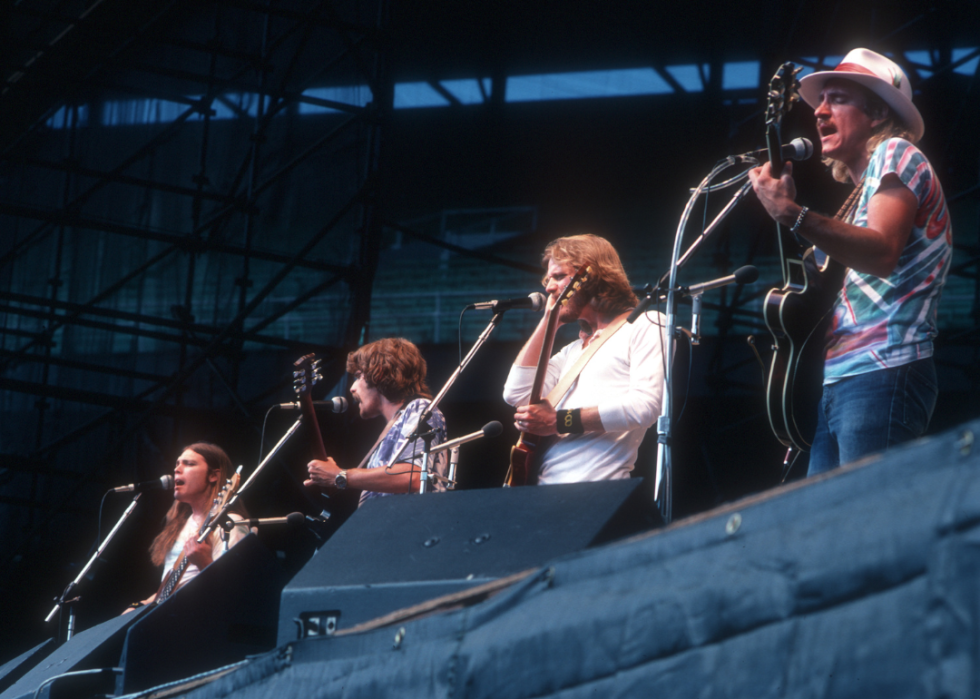
Eagles: Then
Formed in Los Angeles in 1971, this groovy rock band cut hits like "Take It Easy" and "Hotel California," reminiscent of the West Coast, laid-back lifestyle. The Eagles' compilation record "Their Greatest Hits (1971–1975)'' topped the charts for several weeks straight, and is one of the bestselling compilation albums of all time.
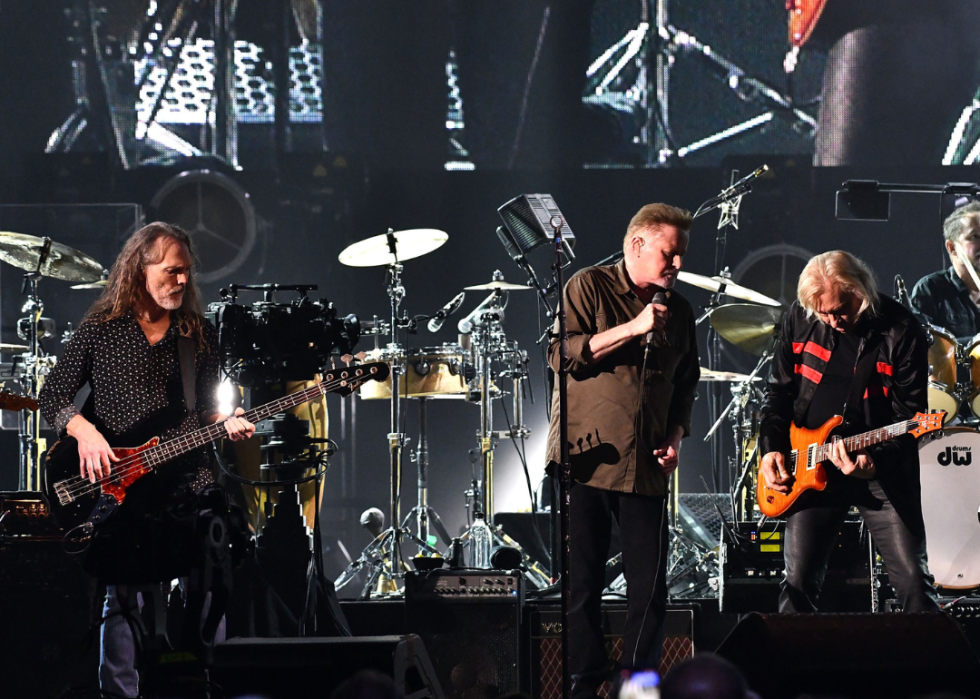
Eagles: Now
In 2016, founding band member Glenn Frey died, leading the band to temporarily retire. Shortly after, they reunited and began performing again. In 2020, the Eagles released "Live From the Forum MMXVIII." Shortly after former bassist Randy Meisner died in 2023, the remaining Eagles embarked on The Long Goodbye Tour. The following year, the Eagles kicked off a residency at the Las Vegas Sphere in September 2024. The Eagles announced additional shows at the Sphere from September to November 2025, though lead guitarist Steuart Smith retired due to Parkinson's disease. The group has since announced performances at the venue extending through April 2026.
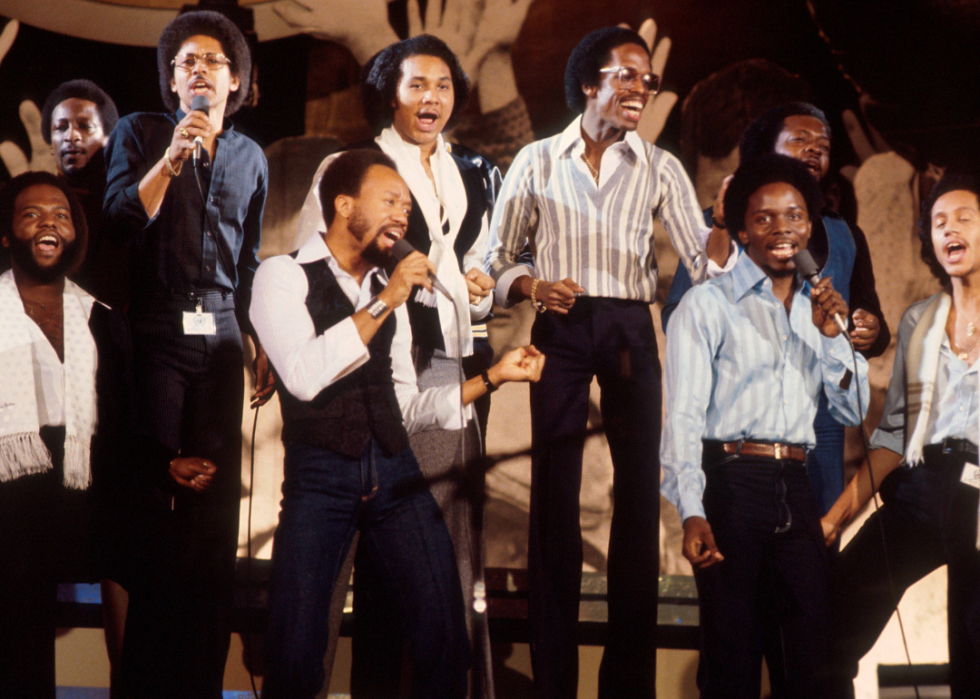
Earth, Wind & Fire: Then
With 90 million records sold worldwide, this group reached fans across multiple continents with its cross-cultural sound. Earth, Wind & Fire led the funk and disco charge of the 1970s with tracks like the groovy "Boogie Wonderland," "Fantasy," and the innovative sampling of "Brazilian Rhyme (Beijo)."
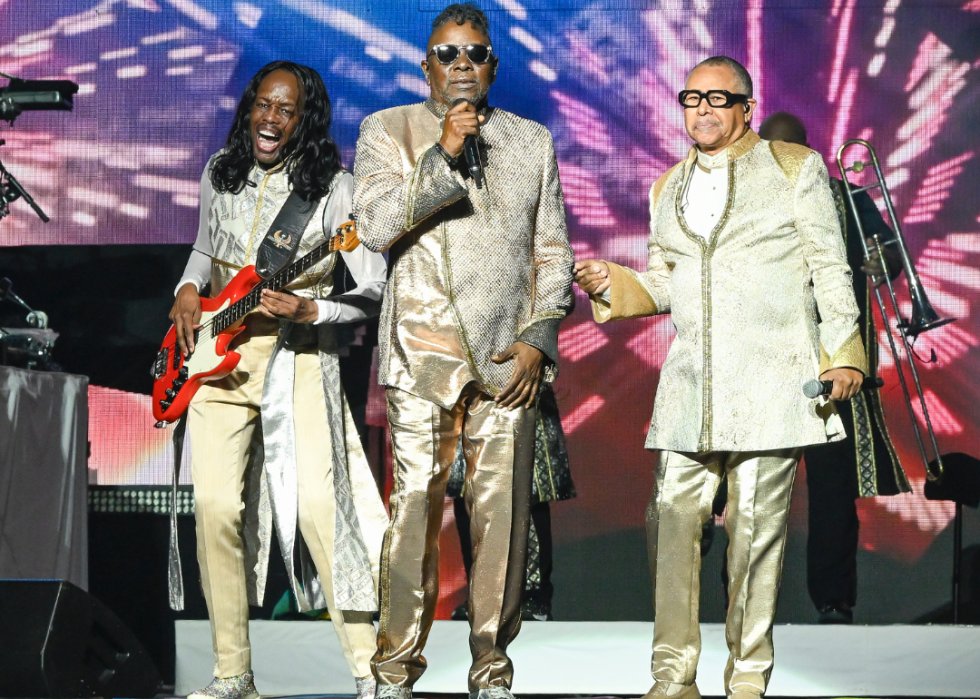
Earth, Wind & Fire: Now
Earth, Wind & Fire's founder and lead singer, Maurice White, died in 2016, but many of the members of the band's original lineup continue to perform together. The group currently has shows scheduled across the U.S. through May 2026.
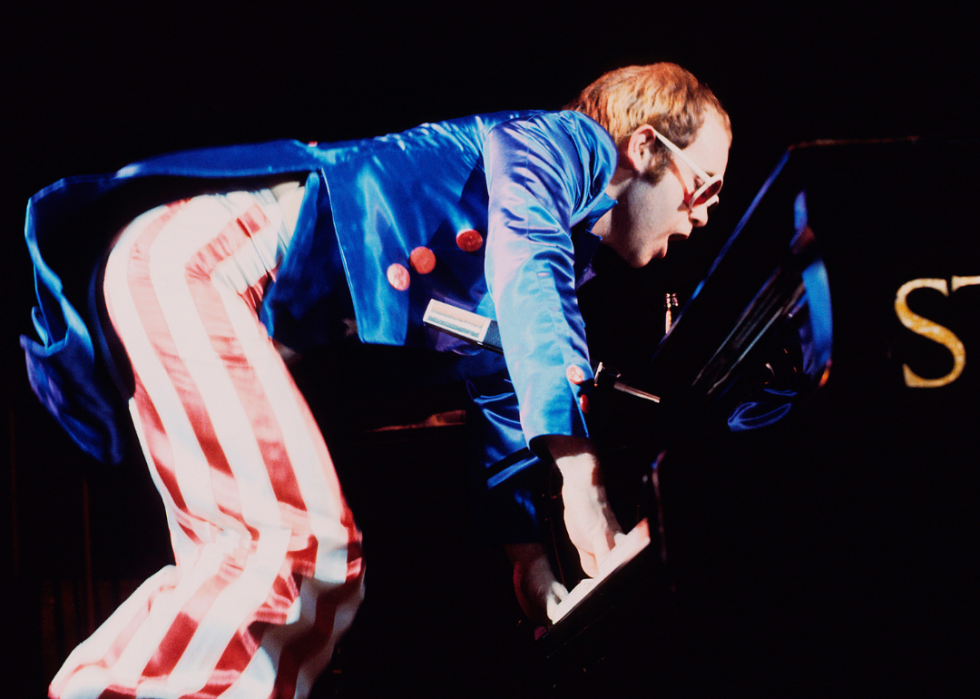
Elton John: Then
Sir Elton John didn't let the '70s go to waste, releasing 12 studio albums during the 1970s, including the acclaimed "Madman Across the Water" and "Goodbye Yellow Brick Road." The megastar led the charts and continued to be a fixture in pop culture and music as a singer, pianist, and composer famous for his incredible showmanship and relatability with his audience.
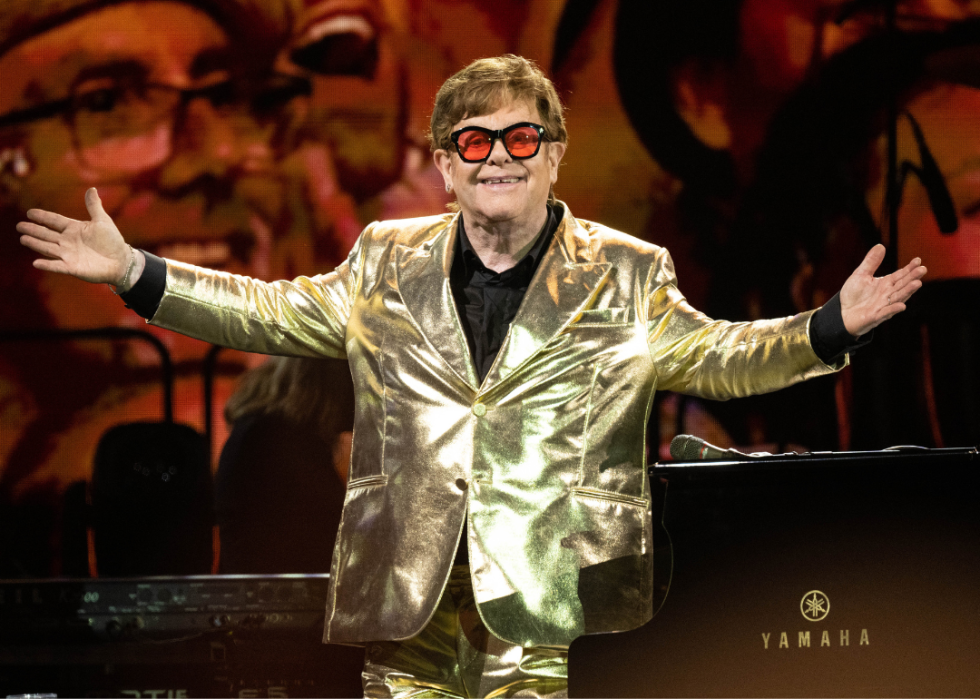
Elton John: Now
Elton John has maintained his place in the spotlight, recording with newer pop artists like Dua Lipa and Britney Spears in recent years. His life also became the subject of a musical biopic, "Rocketman," in 2019. After more than half a century of performing, John delivered a farewell performance at the 2023 Glastonbury Festival. A documentary about John's final tour, "Elton John: Never Too Late," earned him another 2025 Academy Award nomination for the title song. That same year, John released a collaborative album with country singer Brandi Carlile called "Who Believes in Angels?" And though he's officially done with touring, he has performed since retirement, including to an audience of over 70,000 in October 2025.
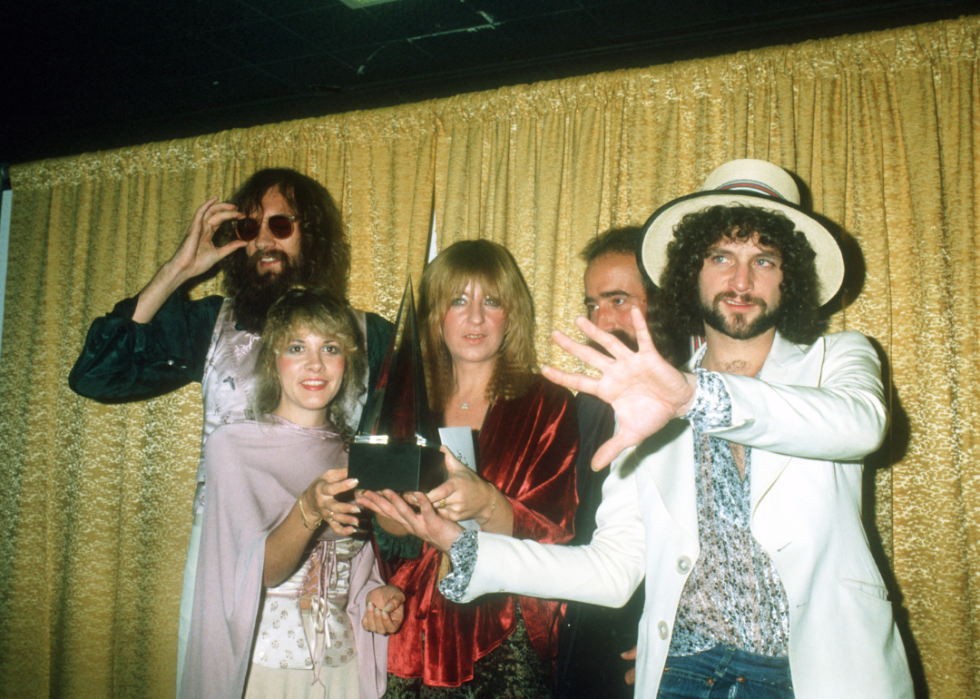
Fleetwood Mac: Then
The original members of Fleetwood Mac were at a recording studio in Los Angeles in 1974 when they heard and fell in love with guitarist Lindsey Buckingham and promptly asked him to join the band. He agreed, but with one condition: Stevie Nicks, his girlfriend, could also join—and so the iconic face of Fleetwood Mac was born. Their 1977 album, "Rumours," which featured classics including "The Chain," "Dreams," and "Go Your Own Way," sold more than 40 million copies worldwide.
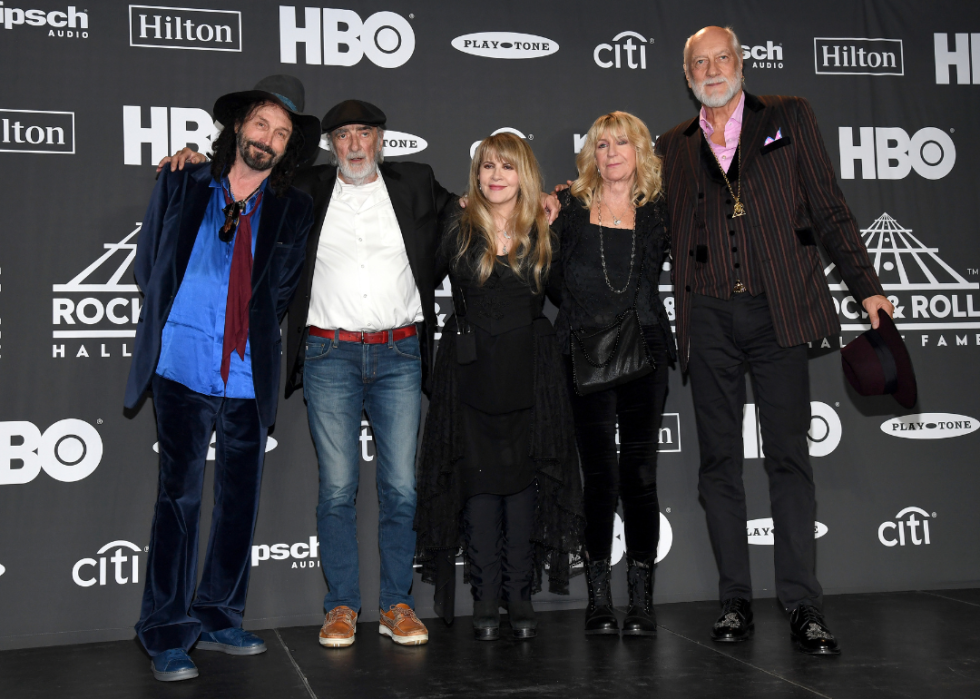
Fleetwood Mac: Now
The band began its last tour in 2018, with Lindsey Buckingham departing the group just before. Christine McVie died in late 2022, prompting Fleetwood Mac to retire formally. Nicks continues to tour as a solo artist. In 2025, Nicks and Buckingham revealed they had mended fences in a press tour tied to the reissue of their album "Buckingham Nicks," prompting hopes of a possible future tour.
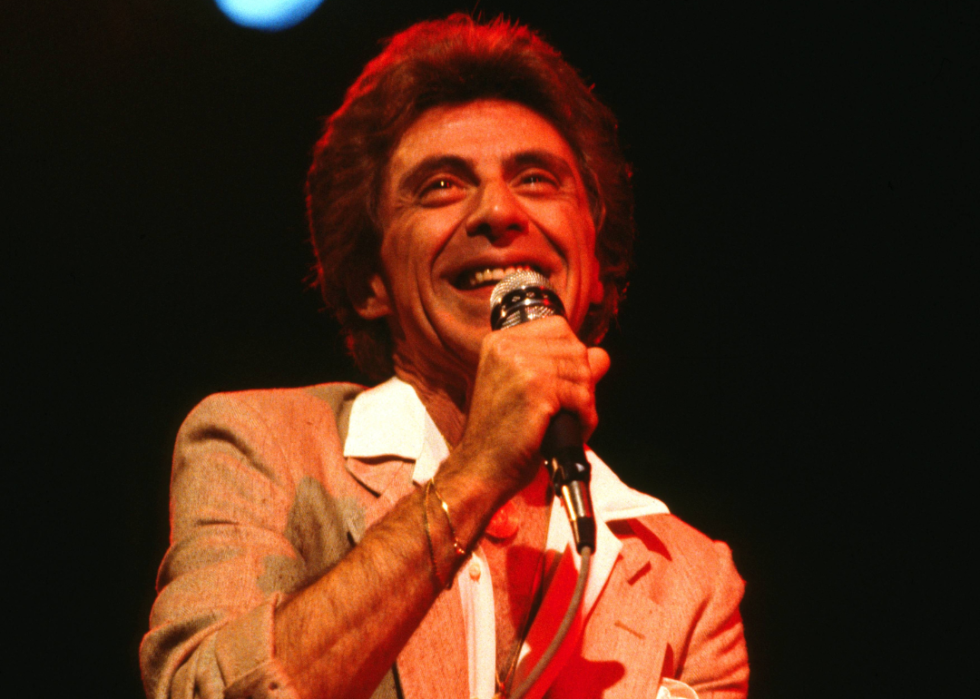
Frankie Valli: Then
Frankie Valli and the Four Seasons were a staple of the early rock 'n' roll doo-wop years with famous tracks like "Sherry" and "Big Girls Don't Cry." Valli's smooth voice and songs about young love captured the ears of kids and adults alike, and in 1975, the band peaked with the hit song, "December, 1963 (Oh, What a Night)."

Frankie Valli: Now
Today, the frontman continues to record, releasing his latest album, "A Touch of Jazz," in 2021. The following year, with a new lineup, Frankie Valli and the Four Seasons embarked on a tour of the U.S. and U.K. In February 2025, Valli was honored with a Lifetime Achievement Award at the Grammy Awards. He continues to tour with the Four Seasons today and is slated to perform across the U.S. through April 2026.
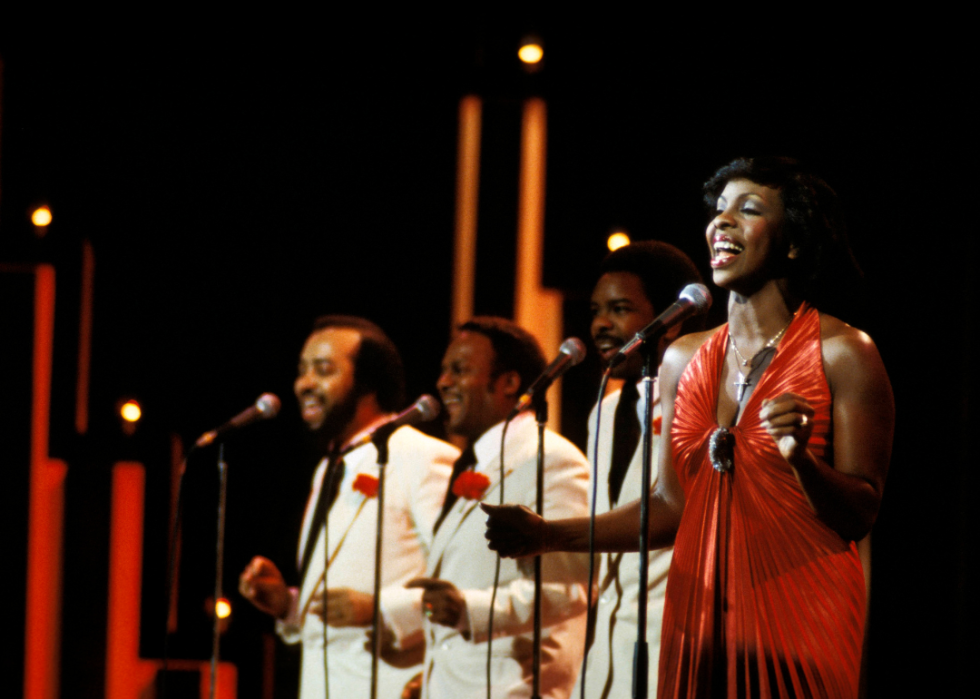
Gladys Knight & the Pips: Then
This R&B family band from Atlanta produced half of the Top 40 hits between 1961 and 1977. The 1973 album "Imagination" featured their biggest hit, "Midnight Train to Georgia." The group continued to produce hits through the '80s.
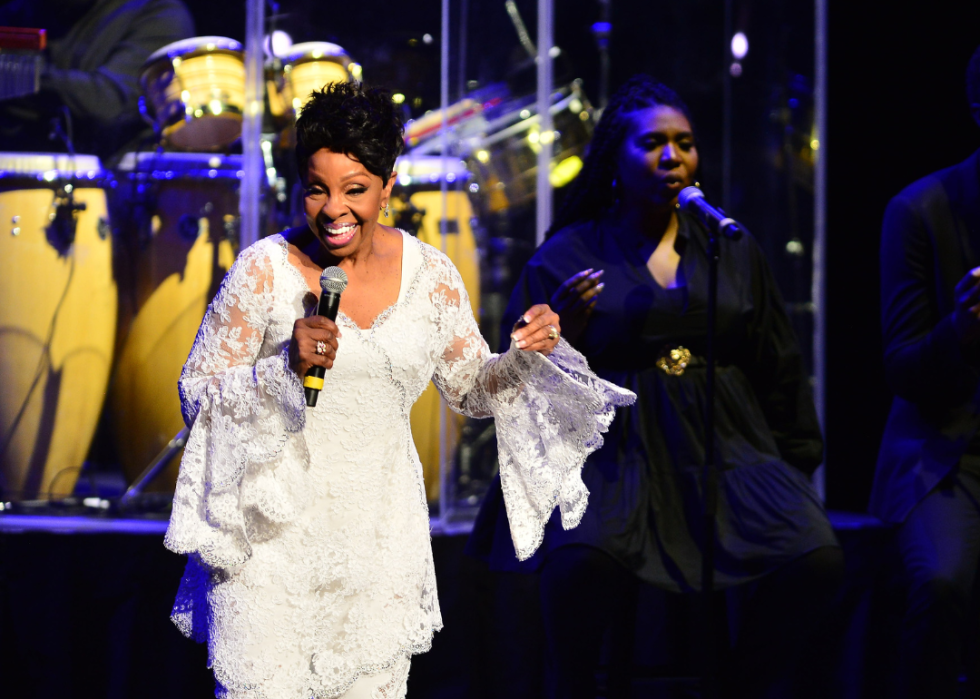
Gladys Knight & the Pips: Now
The group has since received inductions to the Rock & Roll Hall of Fame and the Vocal Group Hall of Fame. The Pips retired in 1989, but Gladys Knight successfully continued a solo recording and performance career and still tours across the U.S., with shows scheduled through April 2026.
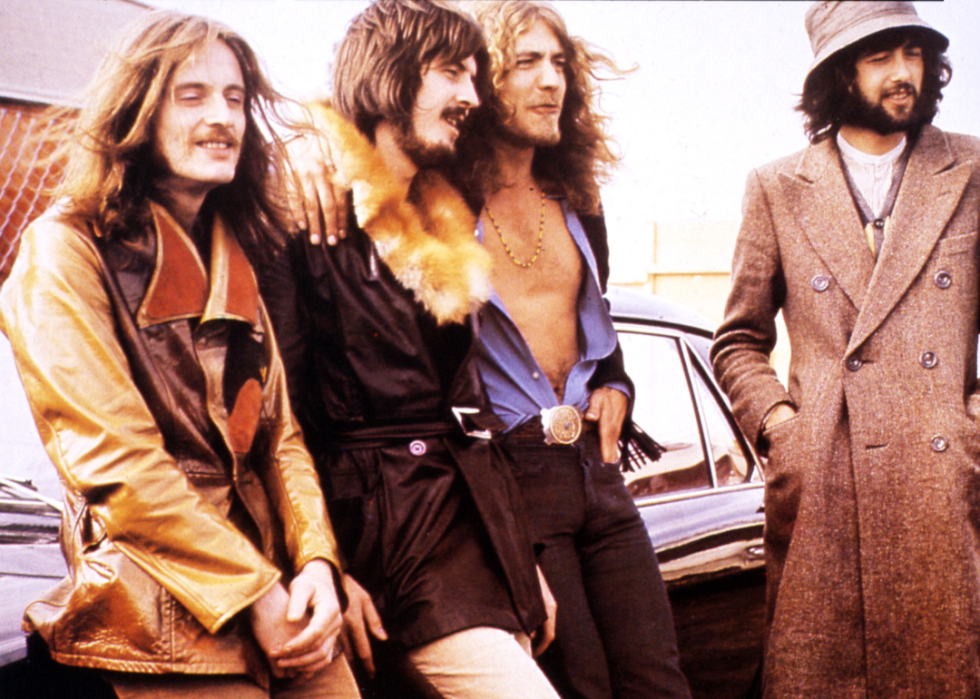
Led Zeppelin: Then
Led Zeppelin reinforced the sacraments of "sex, drugs, and rock 'n' roll" for the 1970s generation. Beyond the band's debaucherous offstage reputation, each member is revered for mastery of their instruments, which is why people often refer to Led Zeppelin as the greatest rock band of all time. The band released eight albums during this decade, producing classics like "Stairway to Heaven," "Kashmir," and "Black Dog."
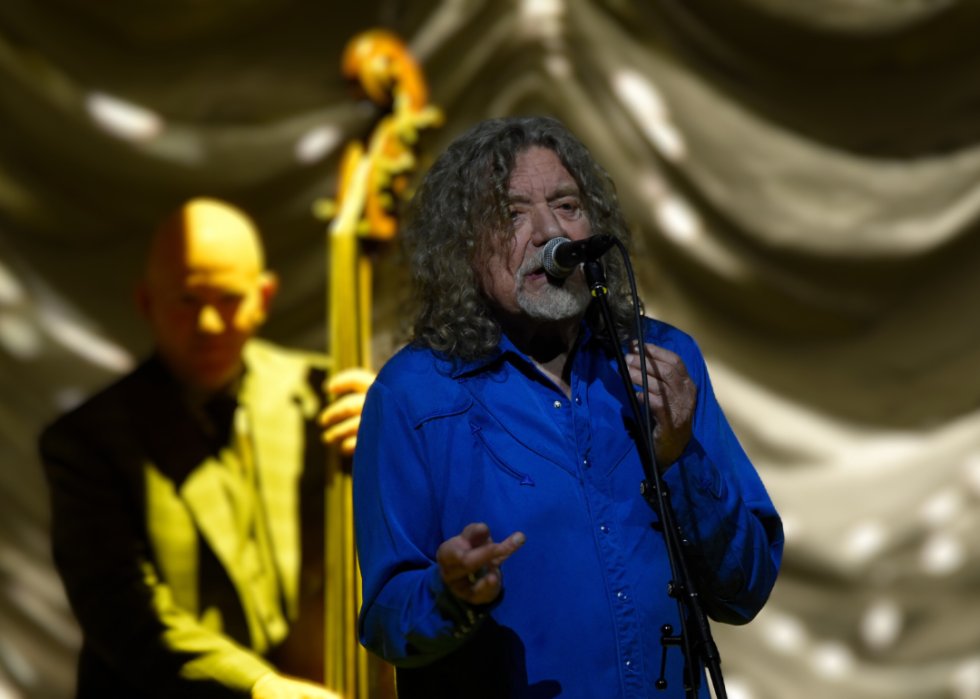
Led Zeppelin: Now
In 1980, the death of the band's drummer, John Bonham, ended Led Zeppelin. The rest of the band members parted and pursued their own musical careers. Today, only lead vocalist Robert Plant still tours and has formed a celebrated collaboration with musician Alison Krauss. However, in honor of the 50th anniversary of their album "Physical Graffiti," Led Zeppelin released a new live album in September 2025.
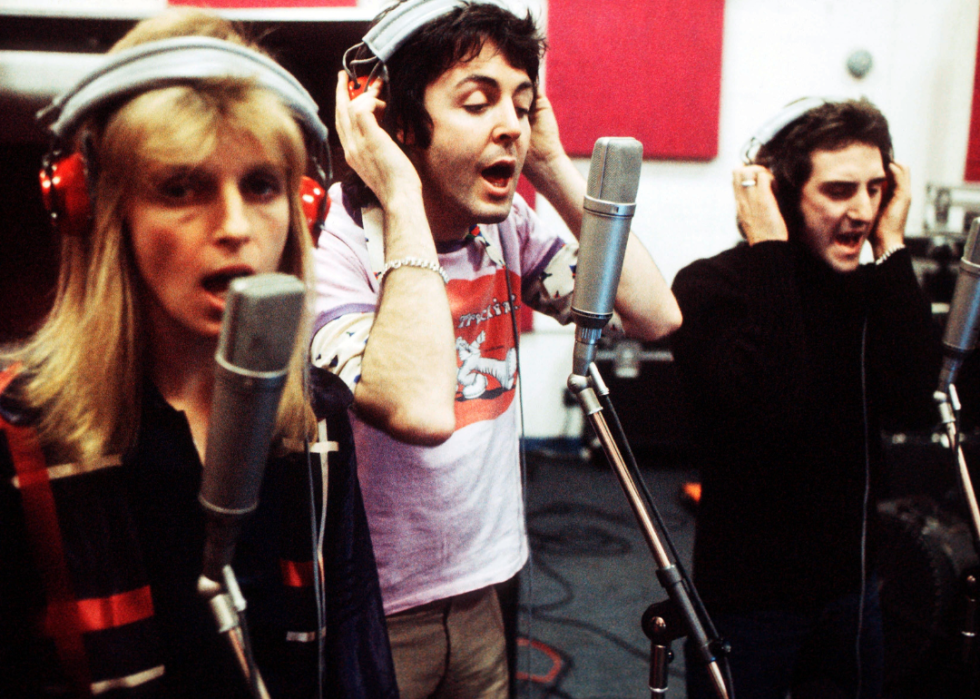
Paul McCartney and Wings: Then
Former Beatle Paul McCartney and his wife, Linda McCartney, formed Wings in 1971, but the first few years left much to be desired. It wasn't until 1973 that they topped the U.S. charts with their album "Band on the Run," which many consider one of McCartney's greatest albums.
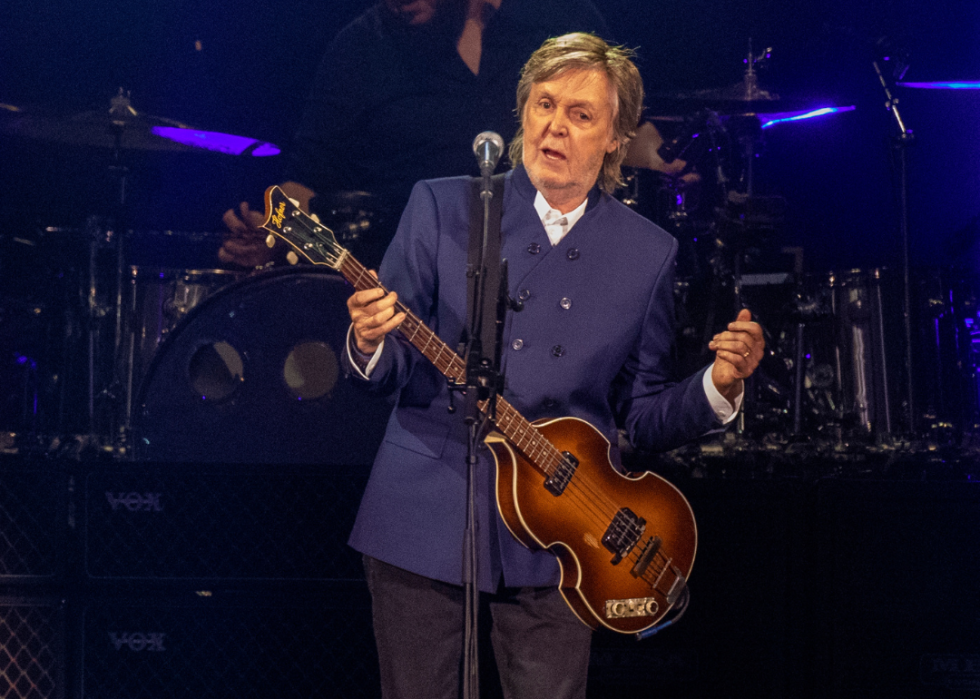
Paul McCartney and Wings: Now
By the early '80s, Wings disbanded, partly due to Paul McCartney's reluctance to tour after the murder of John Lennon in 1980. Linda died of breast cancer in 1998. Paul still performs, and in 2024, he released a reissue of "One Hand Clapping," featuring a collection of the band's live studio sessions from 1974. An accompanying documentary was released in theaters in September 2024. In 2025, McCartney had a number of notable performances, including on the "Saturday Night Live 50th Anniversary Special." The book "Wings: The Story of a Band on the Run," which he co-wrote with Ted Widmer, was released in November 2025.
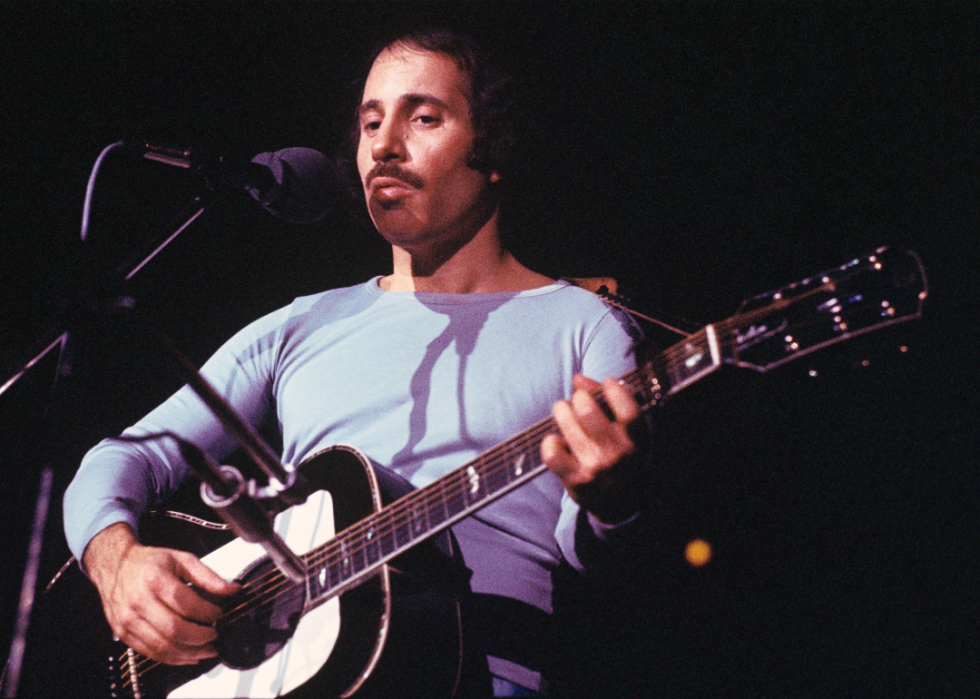
Paul Simon: Then
Paul Simon decided to go his own way in 1970 after a successful run with Art Garfunkel as the duo Simon & Garfunkel. The 1970s were good to the new solo artist. His curiosity and appreciation for international sounds influenced his career, which listeners can hear on his hit album, "Graceland," and in "Me and Julio Down by the Schoolyard," featuring a Brazilian cuica drum.
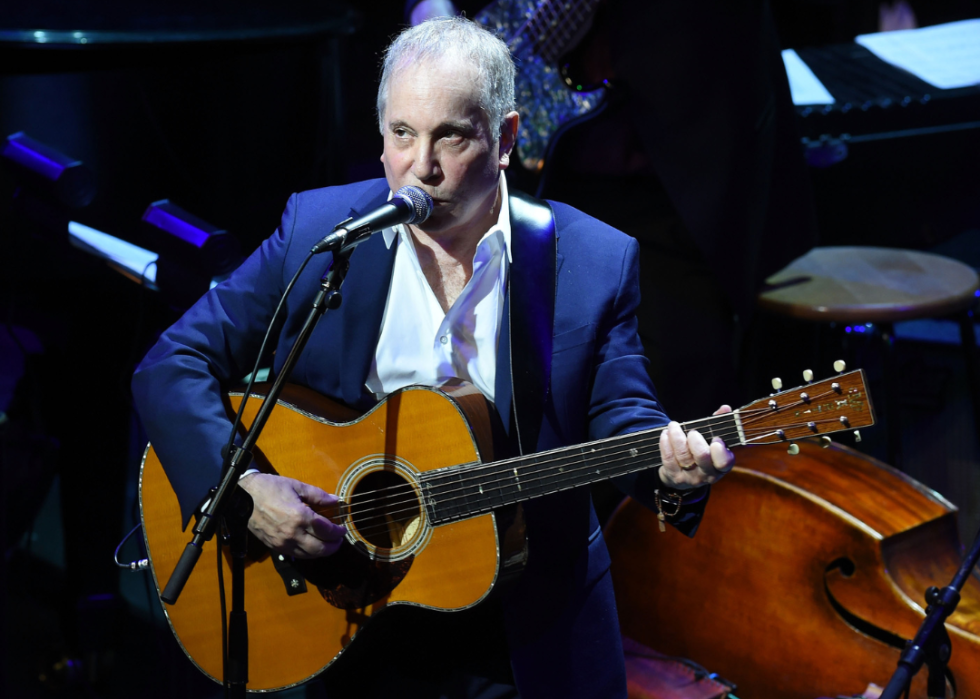
Paul Simon: Now
In 2018, while recording his solo album "Seven Psalms," Simon reportedly suffered hearing loss, making it difficult for him to perform. In a 2023 interview, he discussed losing most of his hearing in one ear, but said he had started writing songs again. And while he rarely takes the stage these days, he performed with Sabrina Carpenter at "SNL50," the 50th anniversary celebration of "Saturday Night Live" in February 2025.
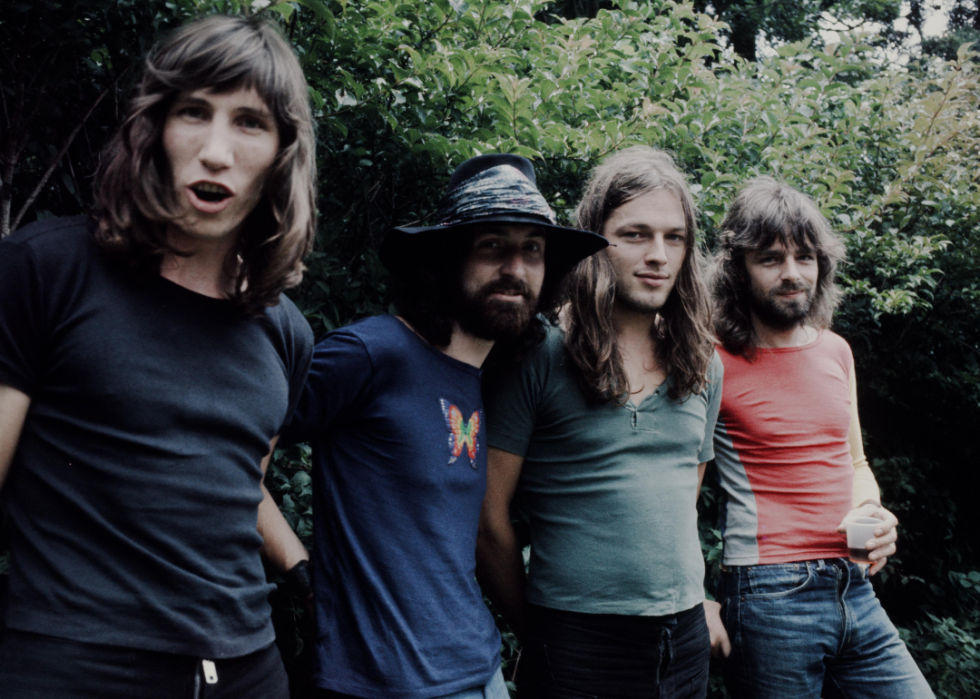
Pink Floyd: Then
Pink Floyd's innovative psychedelic sounds, political lyrics, and crisp guitar riffs created the bestselling album of the decade: "Dark Side of the Moon." After crafting 15 studio albums, the band broke up acrimoniously.

Pink Floyd: Now
Tensions still run high between some of the former band members, particularly between David Gilmour and Roger Waters, over disputes about the continued use of the name and performance of the songs. The year 2023 marked 50 years since the release of "Dark Side of the Moon." Many former Pink Floyd musicians still tour today.
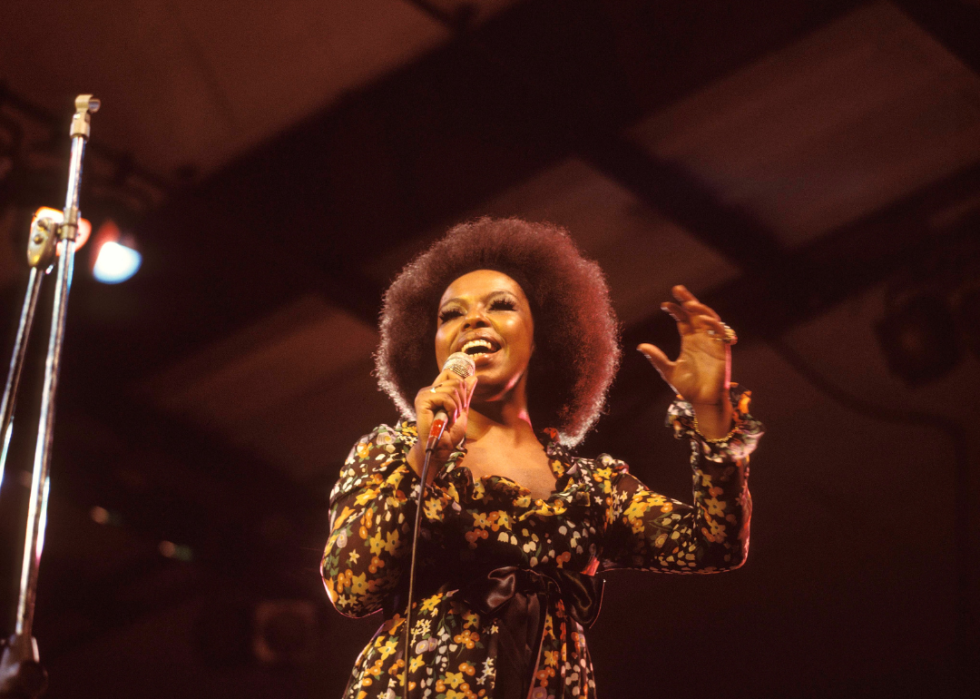
Roberta Flack: Then
Roberta Flack's single "Killing Me Softly with His Song" shattered records in 1973 when it became a crossover hit as the #1 R&B and #1 pop song in the United States. The following year, it won Song of the Year, Record of the Year, and Best Pop Vocal by a Female at the Grammy Awards.
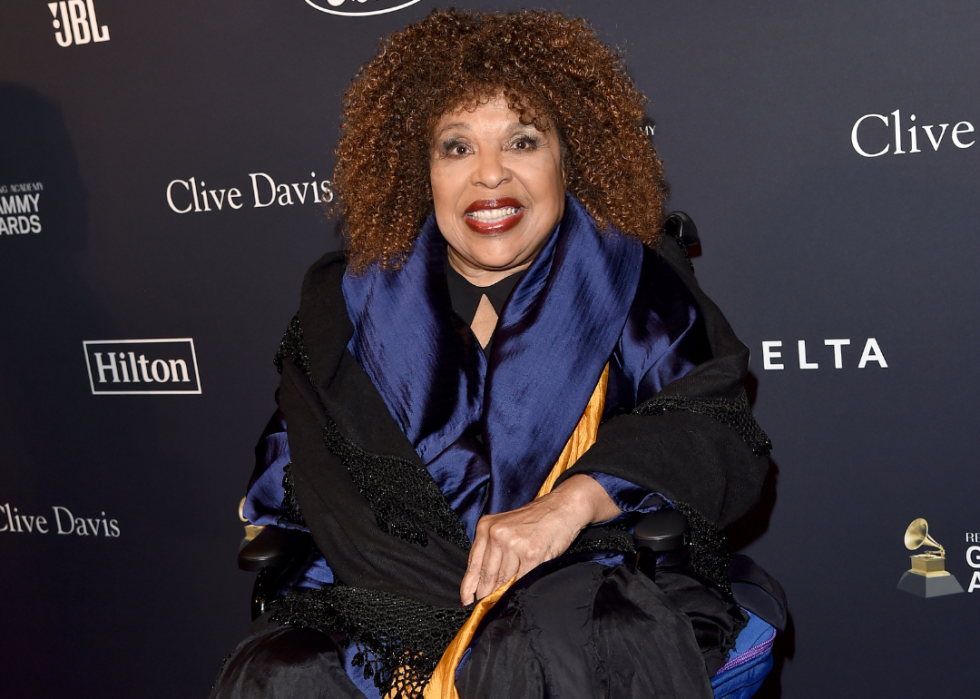
Roberta Flack: Now
Flack continued performing throughout the following decades, gaining a reputation for being one of the greatest women of rock 'n' roll. In 2022, the singer announced her ALS diagnosis, which rendered her unable to sing. She died on Feb. 24, 2025, at 88.
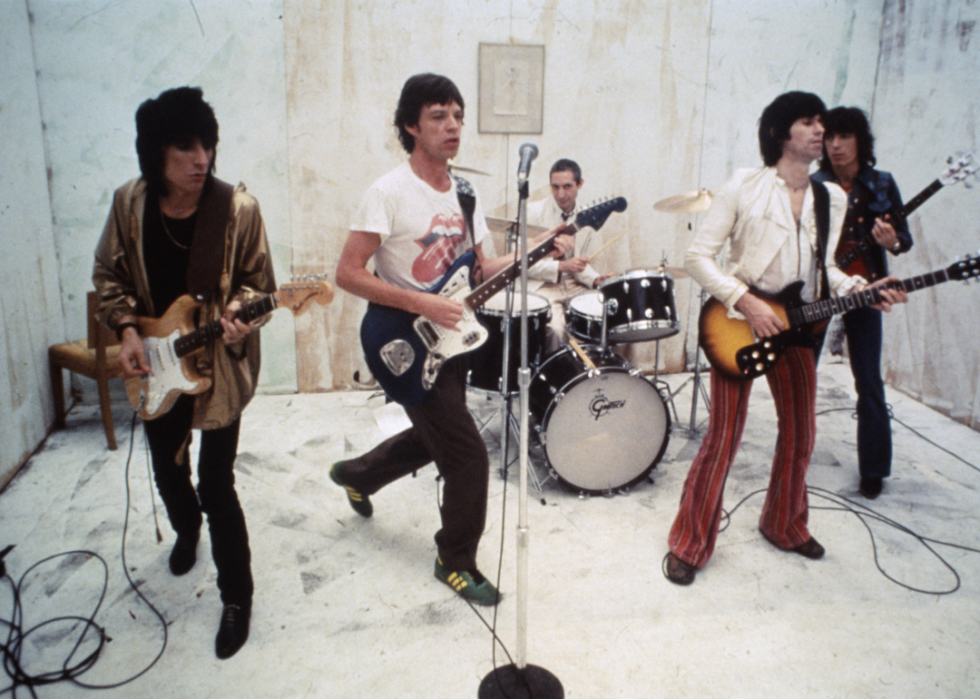
The Rolling Stones: Then
The Rolling Stones were at the center of rock 'n' roll in the '70s, with numerous hit albums like "Some Girls," "Sticky Fingers," and "Black and Blue." In a 1972 interview, when asked if he could see himself performing when he was 60, Mick Jagger said, "Yeah, easily."
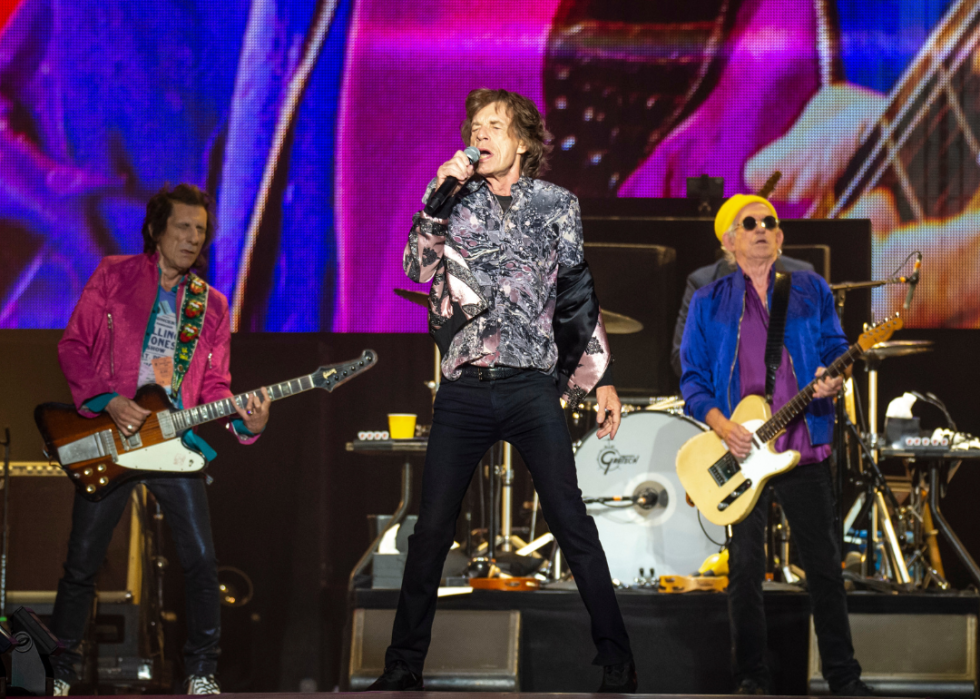
The Rolling Stones: Now
The Rolling Stones released their newest album in 2022, the first since band member Charlie Watts died in 2021. Though Mick Jagger is now on the other side of 80, the group continues to tour today and electrify audiences with the same energy as in the 1970s. In February 2025, the Rolling Stones won a Grammy Award for Best Rock Album.
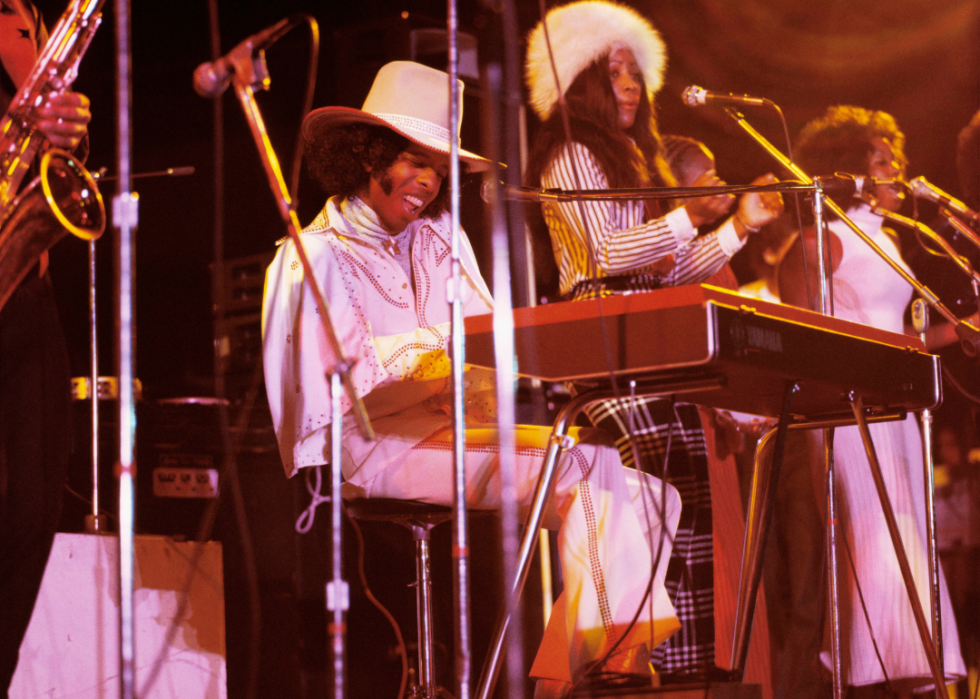
Sly and the Family Stone: Then
Sly and the Family Stone was the first racially integrated band to make it big. The group incorporated this inclusiveness into its music, with sound ranging from funk, R&B, and psychedelia, and often touched on political and social issues of the decade in its lyrics.
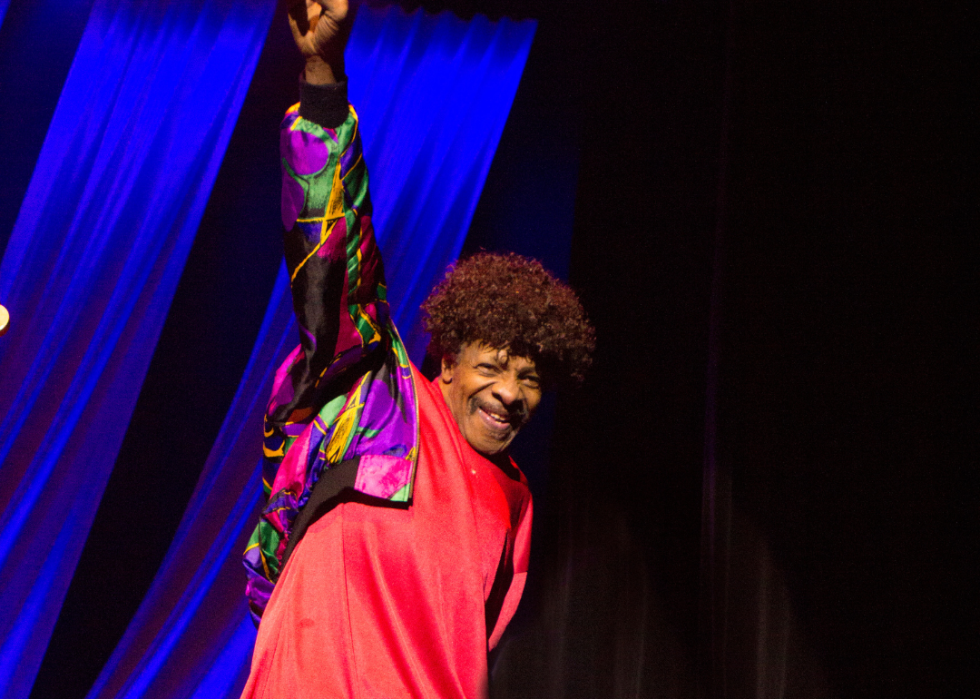
Sly and the Family Stone: Now
Sly Stone, the group's lead singer who fell out of the public eye by the mid-1980s, published a memoir in 2023 discussing the group's fame in the '70s and his struggles with stardom and addiction. Stone passed away in June 2025, though the "first family of funk" carries on his legacy by performing today, with appearances scheduled through 2026.
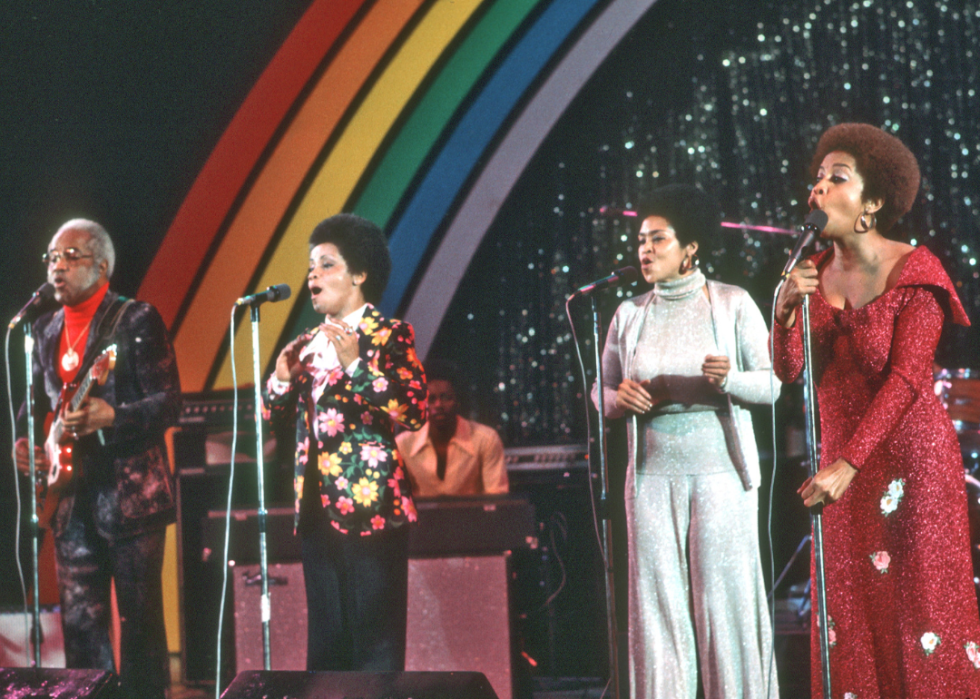
The Staple Singers: Then
In 1972, the R&B and gospel group and family band released "Be Altitude: Respect Yourself," bringing them to this decade's bestseller list. Although they would go on to record many more successful albums, none would come close to the accolades received by "Be Altitude."
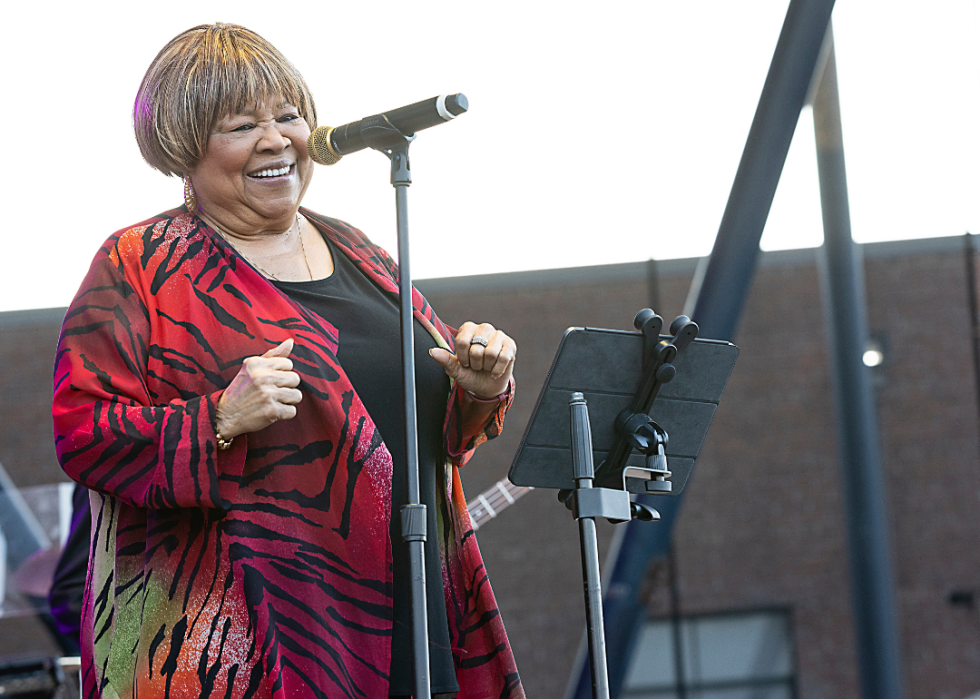
The Staple Singers: Now
Mavis Staples is the only surviving member of the group. She has long enjoyed a successful solo career and still performs—her latest album, "Sad and Beautiful World," was released in November 2025.
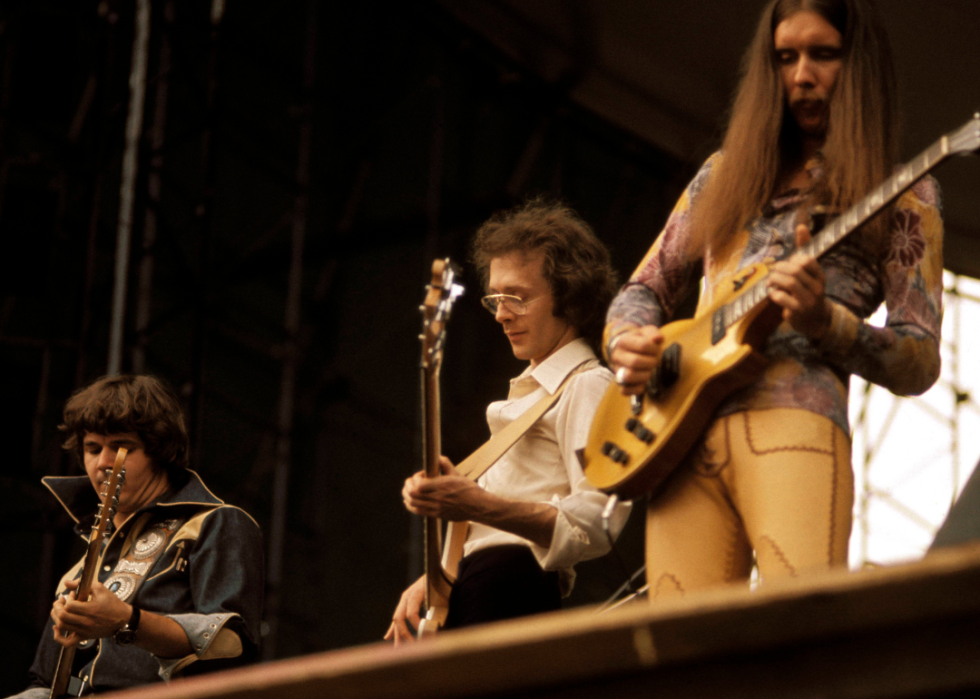
Steve Miller Band: Then
This band took the money and ran in the 1970s. After Steve Miller broke his neck in a car accident in the early '70s, he spent some time away from the public eye, recovering and reinventing himself. After he reemerged, the rock group produced numerous platinum hits that are now staples of the decade, like "The Joker" and "Fly Like An Eagle."
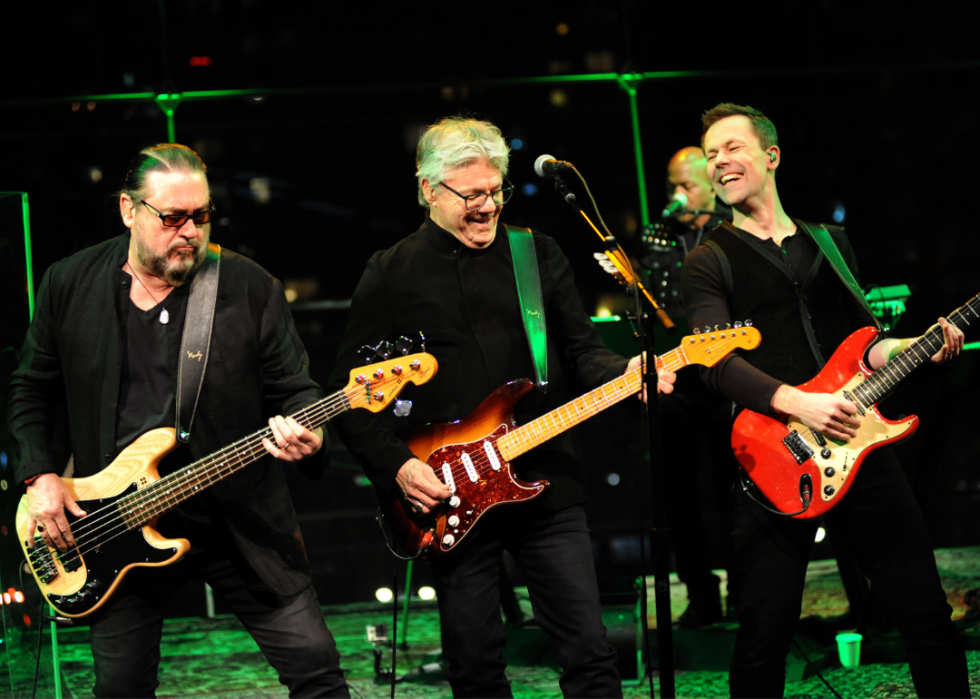
Steve Miller Band: Now
The Steve Miller Band has stayed together, except for a few lineup changes, and has toured consistently throughout the decades. The band most recently released new music in 2011 and has performed across the U.S. with the likes of Def Leppard, Journey, and The Eagles, though the Steve Miller Band shocked fans in July 2025 by unexpectedly canceling all upcoming tour dates due to the increasing frequency of extreme weather events.
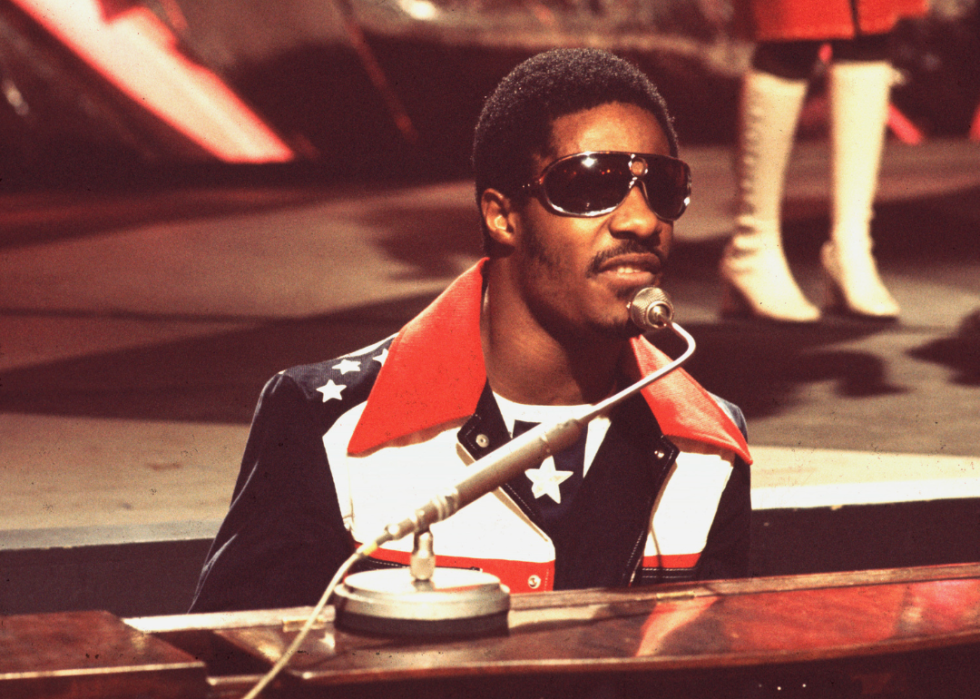
Stevie Wonder: Then
This music prodigy was discovered at the age of 12 and signed to Motown shortly after. Stevie Wonder created back-to-back masterpieces in the mid-1970s. His mastery of the synthesizer brought electronic sound to the mainstream and inspired other musicians. Over the course of the decade, he won more Grammys than any other Motown artist.
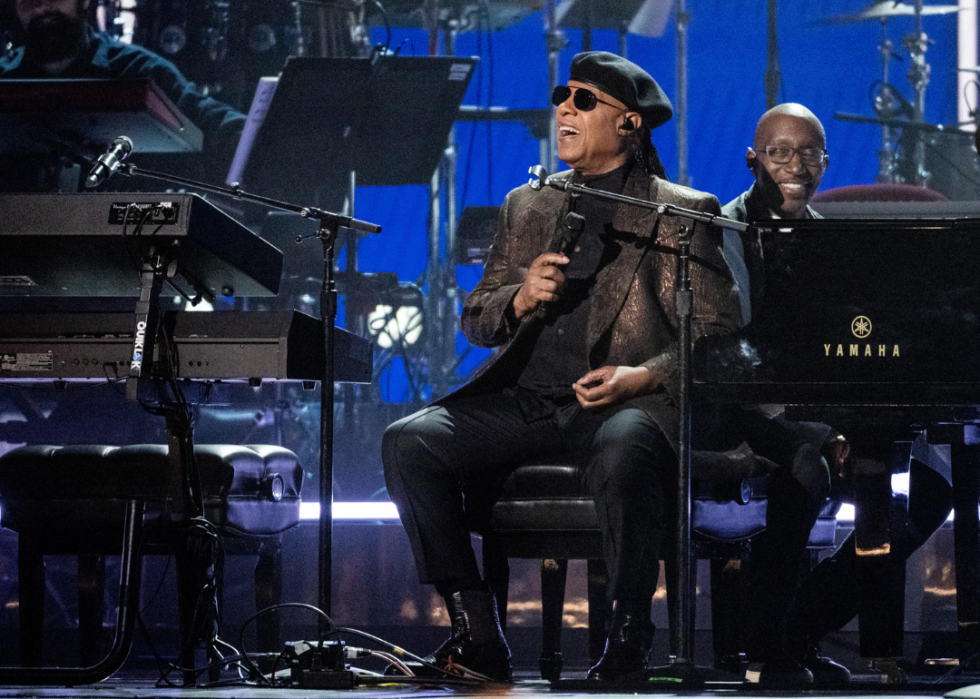
Stevie Wonder: Now
Though he no longer tours, Stevie Wonder's activism and support of numerous charities continue today, as does his musical influence. In the '80s, he led a campaign to make Dr. Martin Luther King, Jr.'s birthday a national holiday with the release of his song "Happy Birthday." In August 2024, Wonder released his first new song in years, a cry for unity called "Can We Fix Our Nation's Broken Heart?"
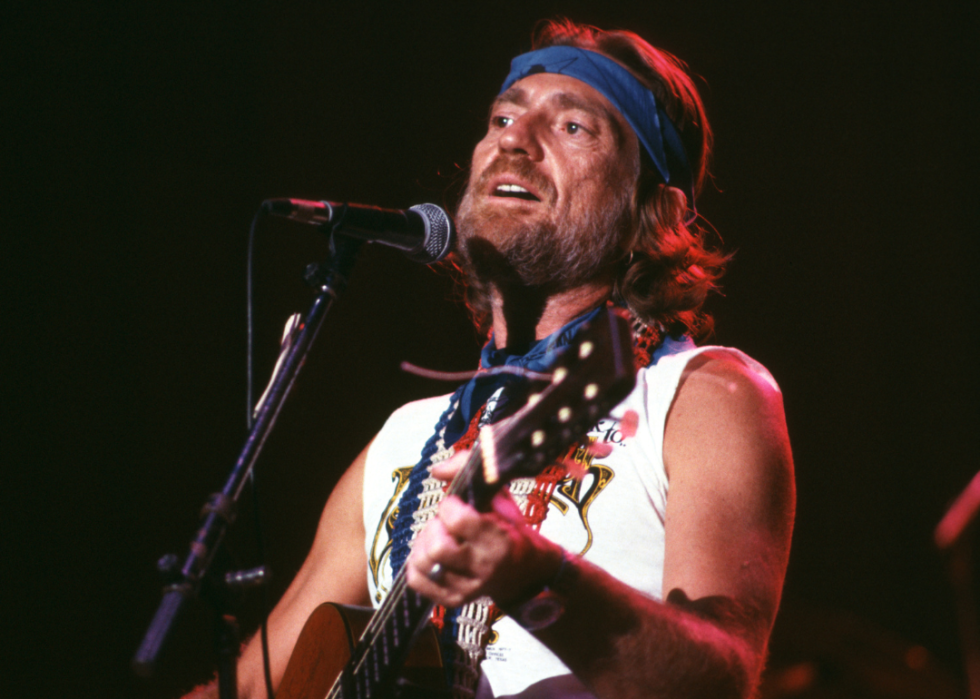
Willie Nelson: Then
The story of Willie Nelson can be put simply: a humble songwriter-turned-country legend. He emerged as a performer in the 1970s and recorded hits like "If You've Got the Money (I've Got the Time)" and "Good Hearted Woman." In 1976, he collaborated with other country musicians on an album called "Wanted! The Outlaws," which went platinum.
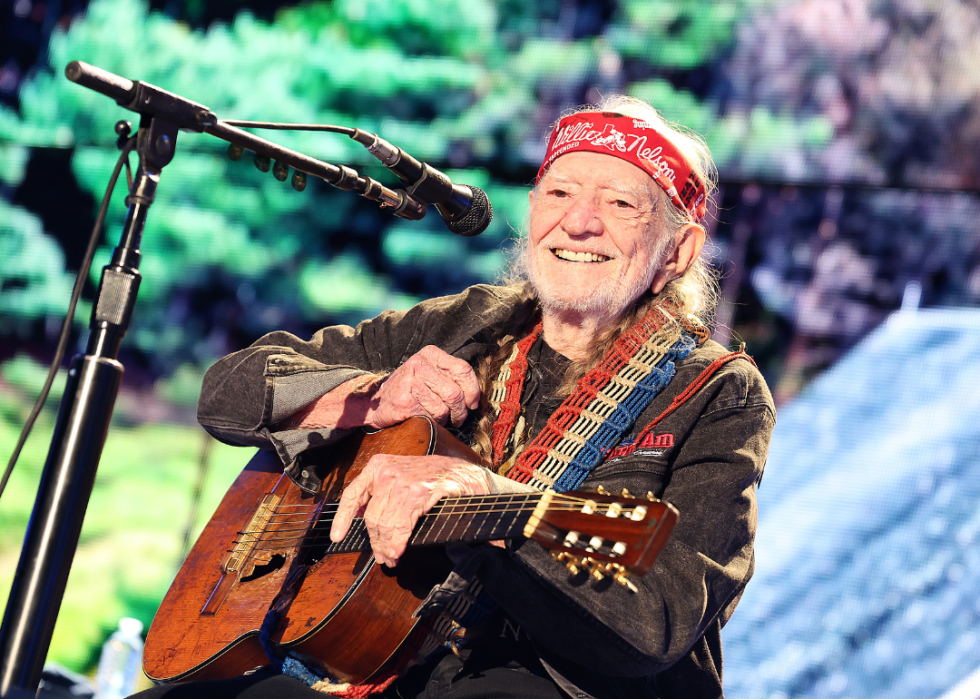
Willie Nelson: Now
While Nelson's legacy as a figure who redefined country music looms large, Nelson is still performing in his 90s. He was inducted into the Rock and Roll Hall of Fame in 2023, and in 2024, he was featured on Beyoncé's country album "Cowboy Carter." In 2025, he released his 154th and 155th albums, "Oh What a Beautiful World" and "Workin' Man: Willie Sings Merle." Nelson is also an advocate for rural and farm communities, as well as for making the country music genre more inclusive.
Additional writing by Cu Fleshman, Louis Peitzman, and Eliza Siegel. Copy editing by Lois Hince and Kristen Wegrzyn. Photo selection by Abigail Renaud and Ania Antecka.



